Back
Related types
Found 195 Results
-
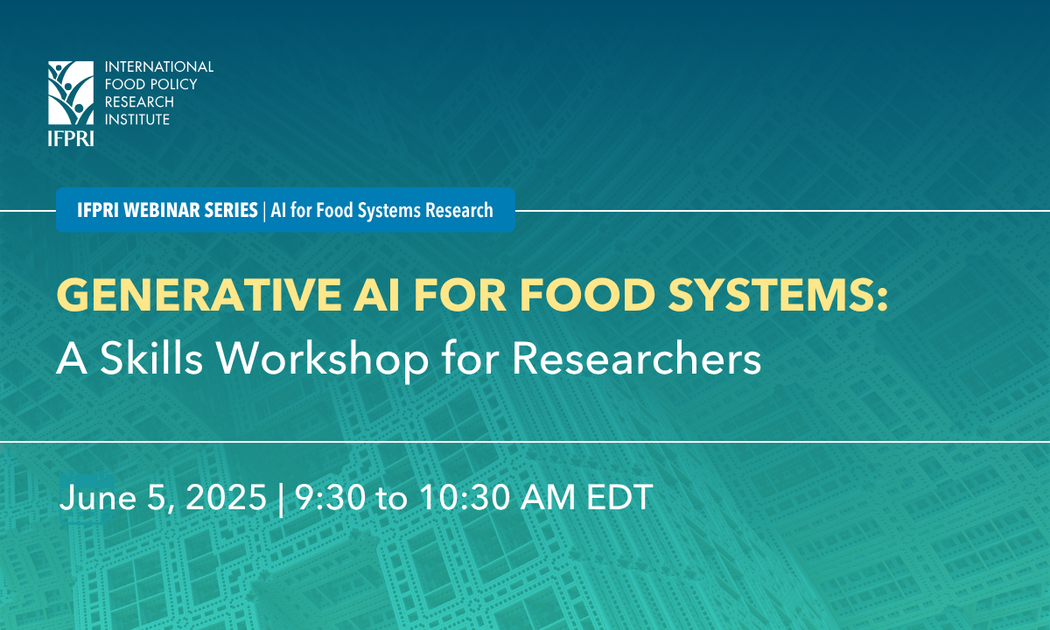
Generative AI for Food Systems: A Skills Workshop for Researchers
This opening webinar launches IFPRI’s new series, AI for Food Systems Research. The series explores how artificial intelligence (AI) is being integrated into food, agriculture, and development research, with a focus on building the skills and critical understanding needed to use these tools responsibly. As outlined in the recent blog post, AI—and more recently, the expanding […]
-
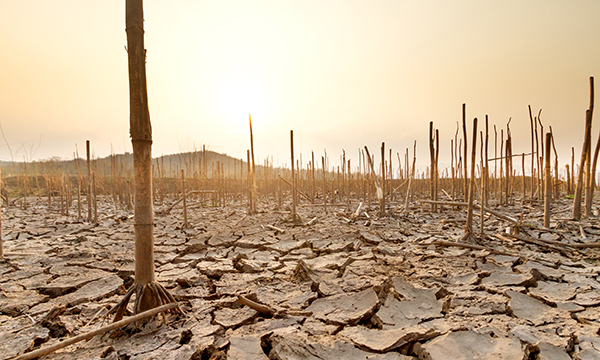
How vulnerable are economies to systemic risks? New approaches to assessing economic and climate-related shocks
Co-organized by IFPRI and the CGIAR
This webinar showcases two innovative approaches to understanding how economic and climate-related risks affect national economies and vulnerable populations across developing regions. The first presentation introduces an economywide modeling approach to assess economic vulnerabilities. It examines how national economies and key population groups are exposed to shocks—such as global market fluctuations or disruptions in domestic […]
-
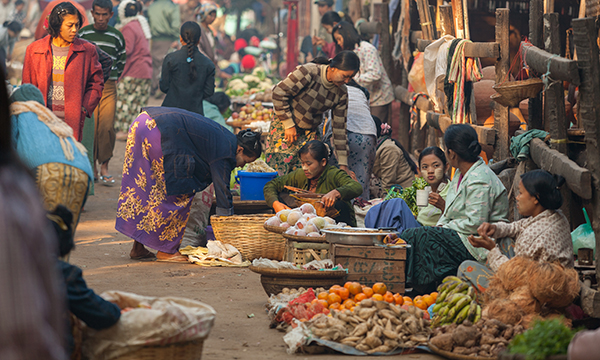
How Can We Improve Food Security Monitoring in Conflict-Affected Regions? Machine Learning for Spatially Granular Food Security Mapping
Co-organized by IFPRI and the CGIAR
Machine learning is transforming agricultural and food security research, enabling more accurate and timely insights. The International Food Policy Research Institute (IFPRI) is advancing data-driven approaches in various domains, including crop-type mapping, maize yield estimation, and boat detection. These innovations demonstrate the potential of machine learning in addressing complex challenges and informing policy decisions. A […]
-
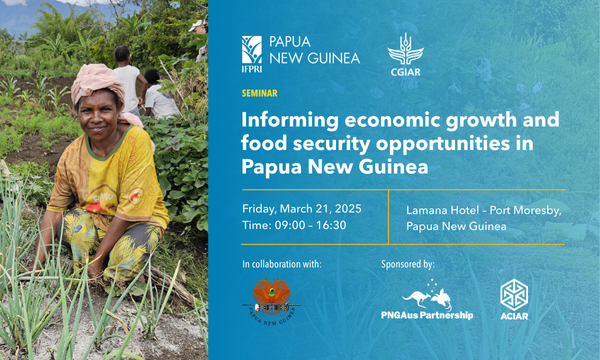
Informing Economic Growth and Food Security Opportunities in Papua New Guinea
Organized by IFPRI, in collaboration with the Department of Prime Minister and National Executive Council (PMNEC), Department of Agriculture and Livestock (DAL), Department of Health (DOH), and the Department of National Planning and Monitoring (DNPM)
The International Food Policy Research Institute, in collaboration with Department of Prime Minister and National Executive Council, Department of Agriculture and Livestock, Department of Health and the Department of National Planning and Monitoring, will host a research seminar on “Informing Economic Growth and Food Security Opportunities in Papua New Guinea”, on March 21st, 2025. As […]
-
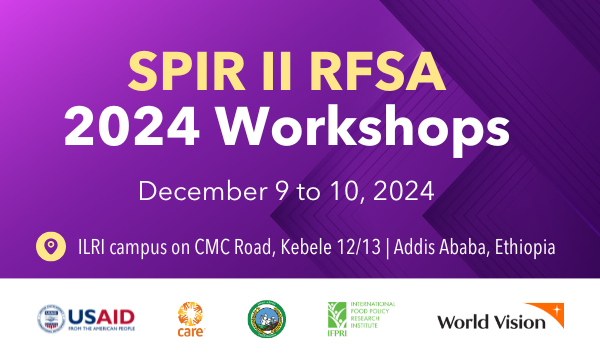
SPIR II RFSA Learning Event: Impact results workshops
Organized by IFPRI
December 9, 2024 | 9:30am to 12:00pm (Africa/Addis_Ababa) | Video Recording | Presentation December 9, 2024 | 1:00pm to 3:30pm (Africa/Addis_Ababa) | Video Recording | Presentation December 10, 2024 | 9:30am to 12:45pm (Africa/Addis_Ababa) | Video Recording | Presentation Click HERE to view the agenda. The Strengthen PSNP Institutions and Resilience (SPIR II) Resilience Food […]
-
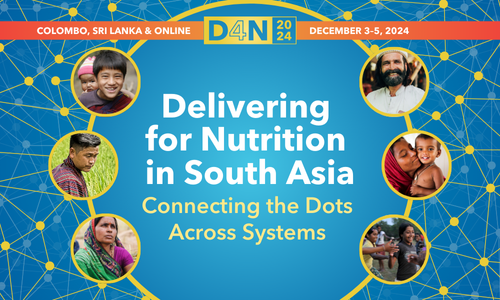
Delivering for Nutrition in South Asia: Connecting the Dots Across Systems
South Asia grapples with escalating levels of malnutrition in various forms, including undernutrition, overweight and obesity, and micronutrient deficiencies, alongside increasing incidence of diet-related non-communicable diseases. Malnutrition results from a complex interplay of factors incorporating household and individual decision-making, agriculture and food systems, healthcare services, education, and socio-ecological systems that determine access to services and […]
-
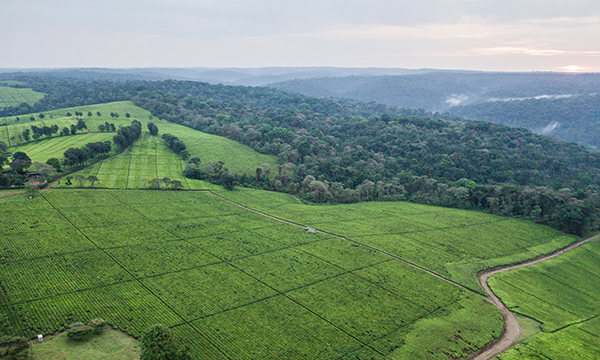
How can we improve global crop mapping? IFPRI’s Spatial Production Allocation Model (SPAM)
Co-organized by IFPRI and the CGIAR Initiative on Foresight
Accessibility to consistent, subnational, spatial information on crops globally will be hugely beneficial to researchers and policy makers. Researchers need this data to evaluate the benefits and costs of adopting new crop and livestock technologies, estimate the impact of climate change on agriculture calculate yield gaps, and analyze the historical evolution of farming systems. Policymakers, […]
-
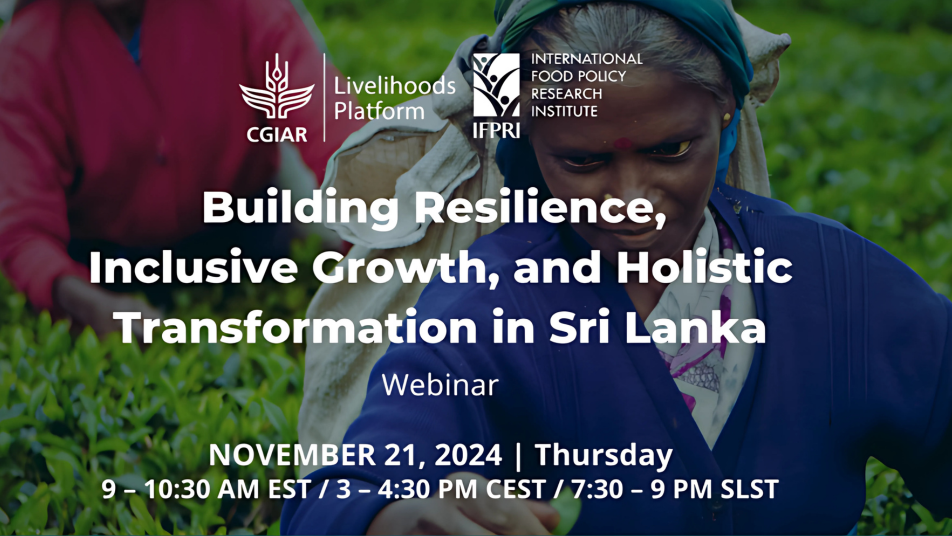
Building Resilience, Inclusive Growth, and Holistic Transformation in Sri Lanka
Organized by the CGIAR Livelihoods Platform and IFPRI
Sri Lanka has experienced slow progress in job creation, poverty reduction, and food insecurity, especially in rural areas. Economic challenges are further compounded by climate change risks and vulnerability to global shocks. At the same time, Sri Lanka has immense potential in agriculture and agro-processing, critical needs for infrastructure development, and a large scope for […]
-
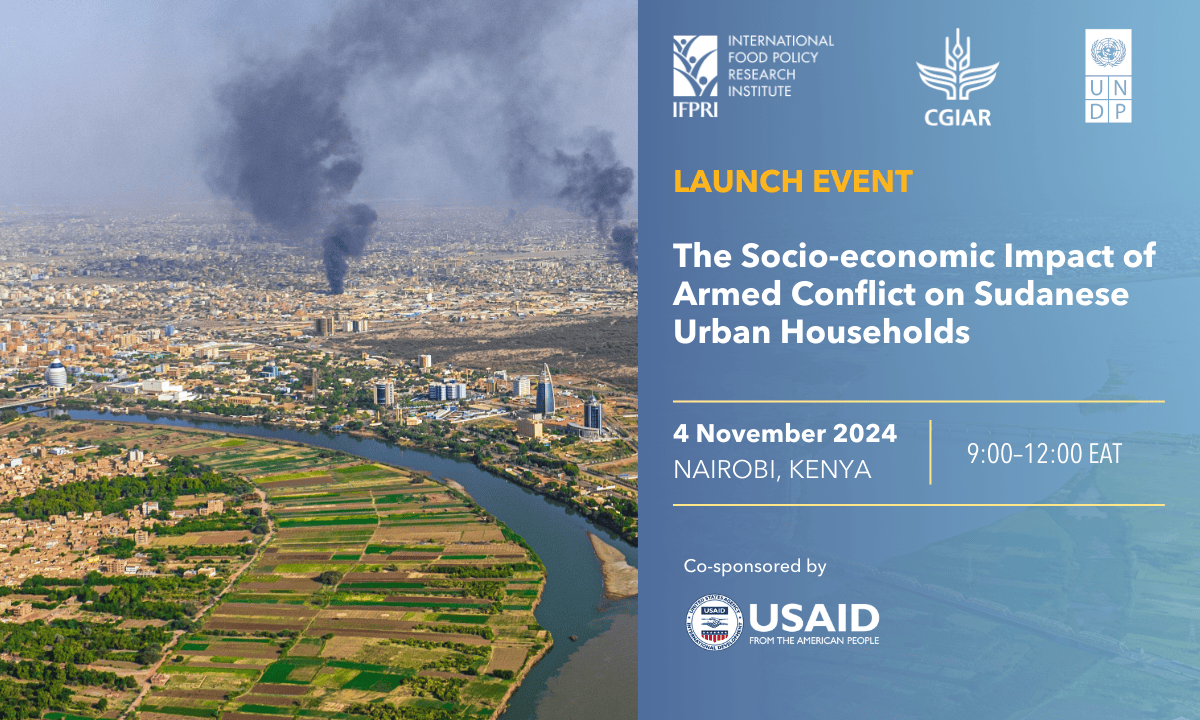
The Socio-Economic Impact of Armed Conflict on Sudanese Urban Households
Co-organized by IFPRI, CGIAR and United Nations Development Programme (UNDP), sponsored by United States Agency for International Development (USAID)
The ongoing conflict in Sudan has been concentrated in cities, with major impacts on urban households. Large numbers of families are displaced, employment is down dramatically, and most children are unable to go to school. A comprehensive survey conducted earlier this year by IFPRI’ Sudan Strategy Support Program and the United Nations Development Programme provides […]
-
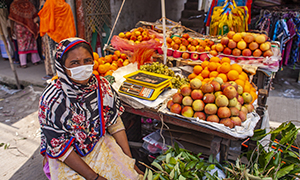
How should governments respond to crises? Rapid response using RIAPA modeling system
Co-organized by IFPRI and the CGIAR Initiative on Foresight
IFPRI’s foresight modeling systems cover food, land, and water systems across the world’s poorest and most food insecure geographies. Thanks to longstanding investments in these systems, IFPRI is uniquely positioned to provide rapid analysis of the impacts of global or domestic crises on agrifood systems, poverty, and food security at global, regional, national, or subnational […]
-
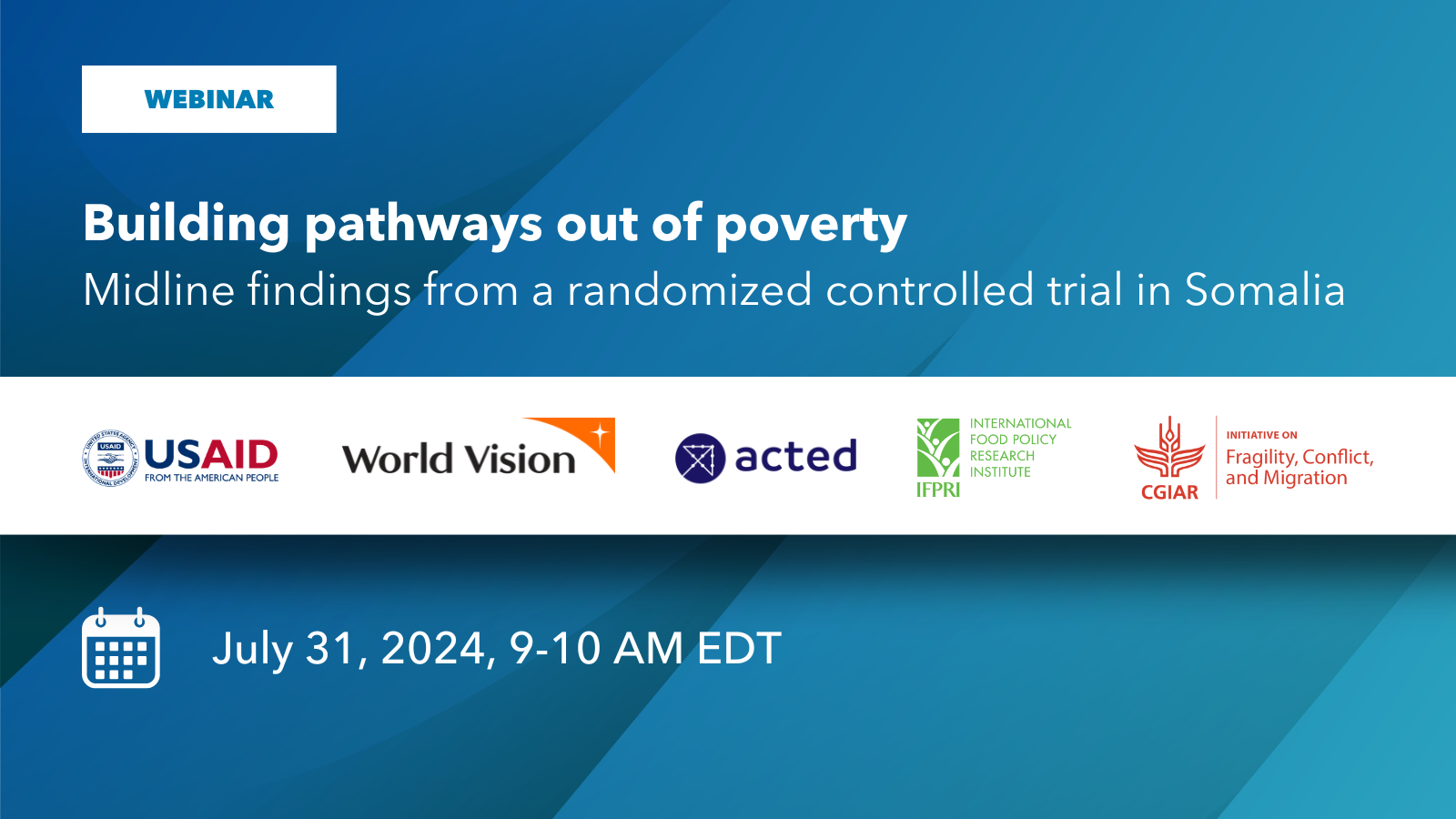
Building pathways out of poverty: Midline findings from a randomized controlled trial
Organized by IFPRI
This webinar will provide evidence around the effects of the Ultra Poor Graduation program implemented in Baidoa, Somalia by World Vision and funded by the U.S. Agency for International Development (USAID)’s Bureau for Humanitarian Assistance (BHA). The project seeks to enable ultra-poor internally displaced households to graduate from extreme poverty and begin an upward trajectory […]
-
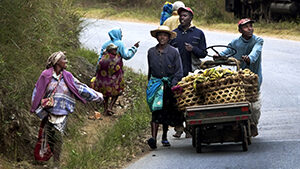
Tracking Global and National Agricultural Transformation
Co-organized by IFPRI, Agrilinks, and United States Agency for International Development (USAID)
Agricultural transformation involves the shift in production and workers from traditional agriculture to more productive activities, both within primary agriculture and across sectors within the broader agrifood system. This evolution enhances productivity and typically reduces poverty, raises incomes, and promotes healthier diets. However, not all countries are experiencing the same pace of agricultural transformation, and […]
-
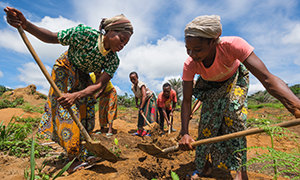
How does agricultural productivity growth affect agrifood system transformation goals? Exploring trade-offs using IMPACT
Co-organized by IFPRI and the CGIAR Initiative on Foresight
Agrifood systems are complex and changing, so it is critical to explore different potential futures to inform decisions today that can put the world on a better path for livelihoods, health, and the environment. In the coming decades, changes in population, income, and diets will put increasing pressure on agrifood systems to meet evolving food […]
-
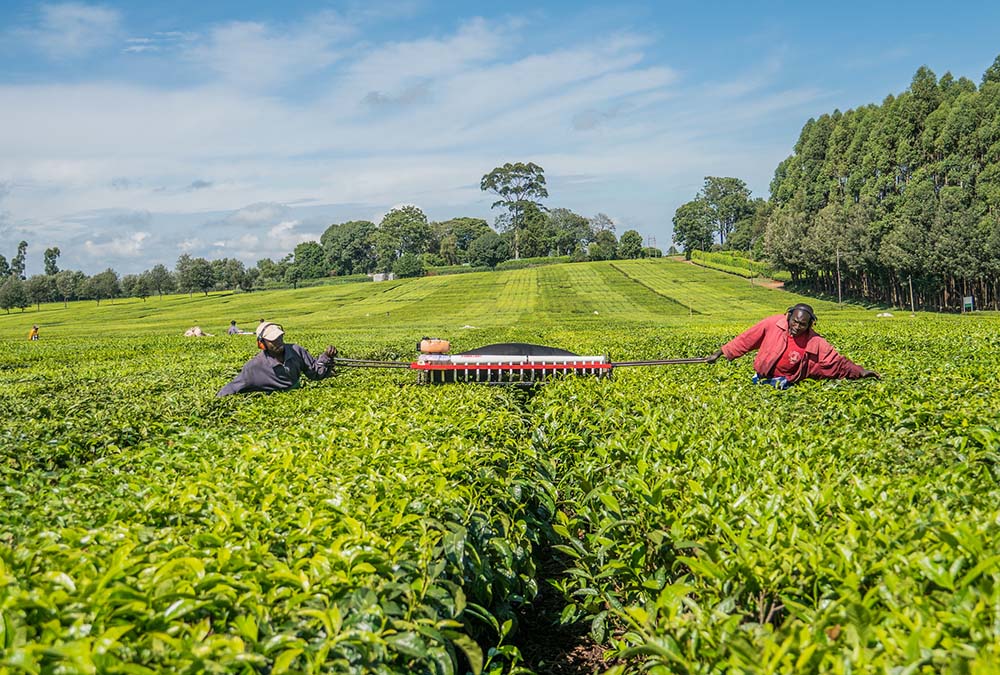
How do we prioritize agrifood system policies and investments? Insights from the RIAPA modeling system
Co-organized by IFPRI and the CGIAR Initiative on Foresight
Virtual Event: June 12, 2024 at 10:00am-11:00am EDT. In this webinar, we will demonstrate how RIAPA has been used to identify priority agricultural value chains that most effectively contribute to development outcomes.
-
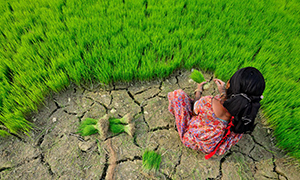
What does climate change mean for the future of agriculture? Insights from the IMPACT modeling system
Co-organized by IFPRI and the CGIAR Initiative on Foresight
Virtual Event: May 15, 2024 at 10:00am-11:00am EDT. This webinar, the first in the series, will focus on how IMPACT can be used to analyze how climate impacts on agrifood systems (and particularly crop productivity) may vary both across locations and over time in the coming decades, and how that can inform decisions about policies and investment today.
-
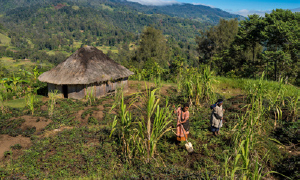
2023 PNG Rural Household Survey: Report Launch
In-person Event: March 7, 2024 – 12:30 PM to 3:30 PM GMT+10. This seminar will provide results of the rural household survey and discuss opportunities for promoting agricultural transformation for economic growth and food security in PNG.
-
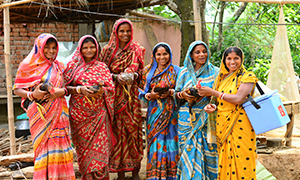
From Research to Impact: Towards just and Resilient Agri-food Systems
2023 CGIAR GENDER-ICAR Conference
Conference: October 09, 2023 – 9:00 AM to October 12, 2023 – 6:00 PM IST. IFPRI is participating in the 2023 annual CGIAR gender research conference will take place in New Delhi, India.
-
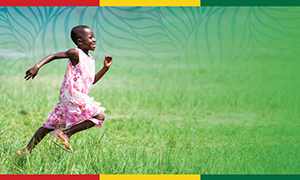
Release of the Social Accounting Matrix (SAM) for Ghana
Support provided by the Bill & Melinda Gates Foundation (BMGF), the U.S. Agency for International Development (USAID), and contributors to the CGIAR Trust Fund through support to the CGIAR Research Initiative on Foresight
Event: August 24, 2023 – 5:30 AM- 7:00 AM EDT. IFPRI is co-hosting the release of the Social Accounting Matrix (SAM) for Ghana under the Nexus Project in partnership with the Ghana Statistical Service and the Institute for Statistical, Social and Economic Research.
-
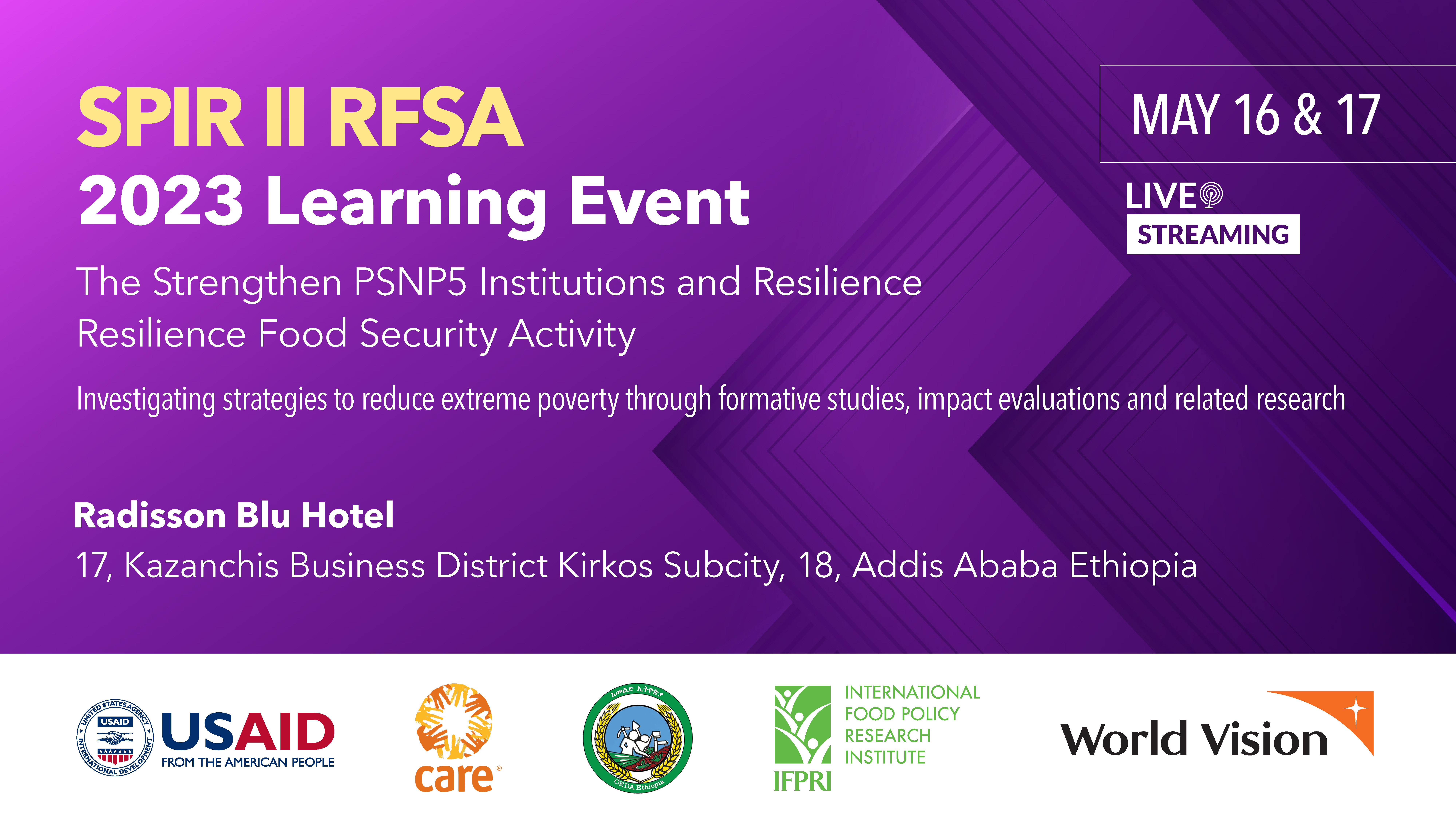
SPIR II Learning Event
Co-organized by IFPRI, USAID, CARE, ORDA, and World Vision
May 16 and 17, 2023 (9:00am – 5:00pm Addis Ababa): The Strengthen PSNP5 Institutions and Resilience (SPIR II) Resilience Food Security Activity (RFSA) in Ethiopia is a five-year project (2021-2026) that supports implementation of the fifth phase of the Productive Safety Net Programme (PSNP5) in Amhara and Oromia regions and provides additional graduation model programming through complementary gender-sensitive livelihood, nutrition, and climate resilience activities to strengthen the program and expand its impacts.
-
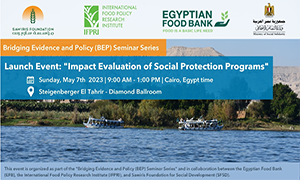
Launch Event: Impact Evaluation of Social Protection Programs
Bridging Evidence and Policy (BEP) Seminar Series
Event: May 7, 2023 – 9:00 AM- 1:00 PM EEST. This launch event will address venues through which impact evaluation informs policymaking with a focus on social protection programs in Egypt, bringing officials, researchers, implementers, and NGOs together to share major findings and options for the future.
-
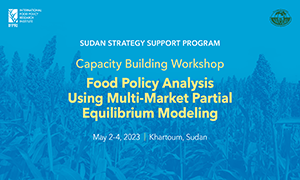
Training Workshop: Food Policy Analysis Using Multi-Market Partial Equilibrium Modeling
IFPRI-Sudan
Event: May 2, 2023 – 9:00 AM to May 4, 2023 – 5:00 PM EDT. IFPRI-Sudan is organizing a capacity building workshop on food policy analysis using multi-market partial equilibrium modeling. This three-day training event will be held at the Arab Organization for Agricultural Development (AOAD) in Khartoum, Sudan and will be led by IFPRI’s Paul Dorosh and Khalid Siddig.
-
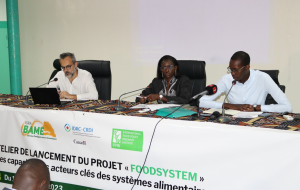
Strengthening National Capacities and Policies for Food Systems Analysis and Transformation in Senegal
Official Launch of “Food Systems” Project, funded by IDRC
The objective of this workshop was to formally launch the “Food Systems” project and develop a work plan for the upcoming period of activities. To achieve this, the workshop first presented the project’s objectives, methodology, project cycles, and expectations. It also covered the main findings of the stocktaking report, which had been developed prior to […]
-
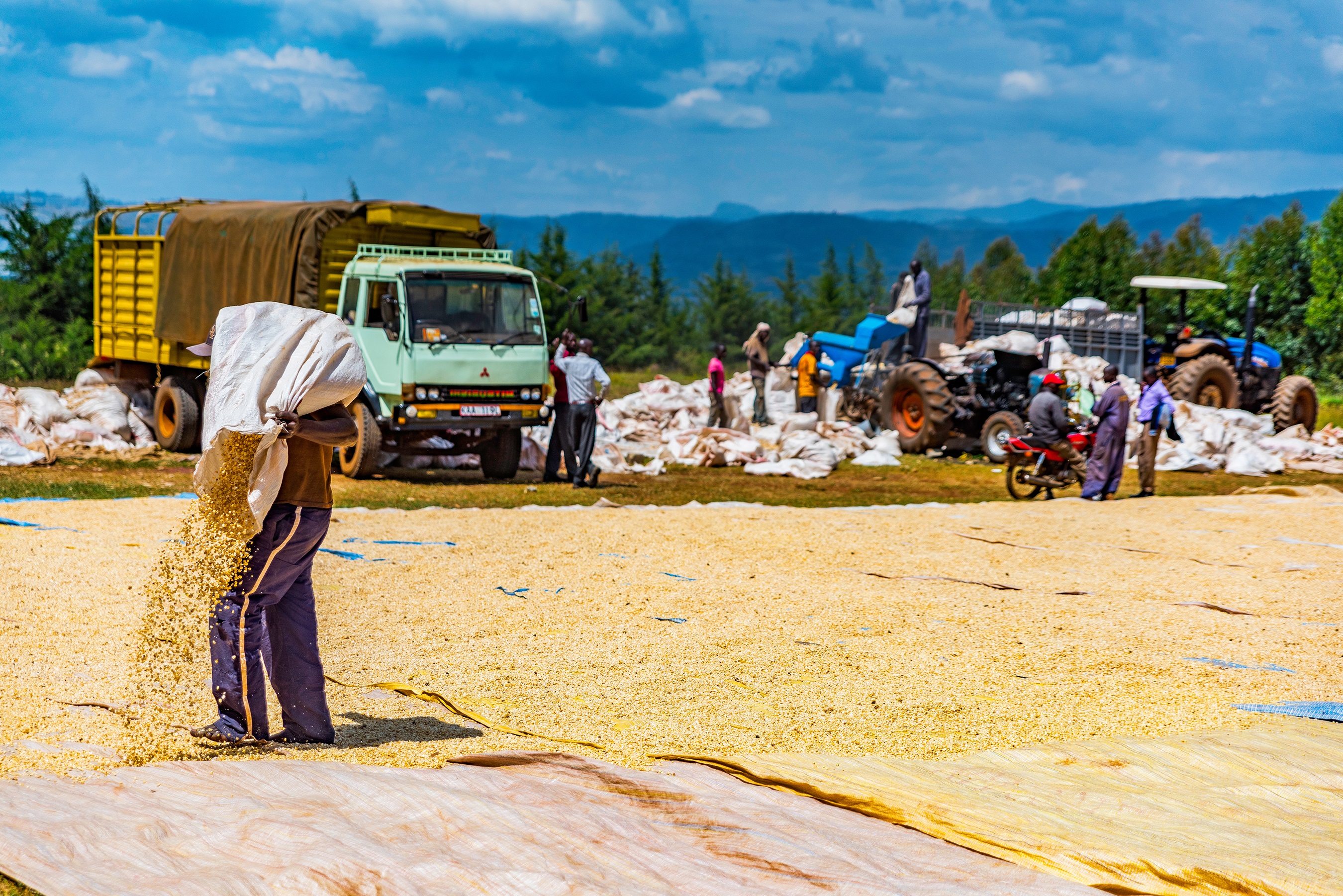
Leveraging the New Bottom-Up Economic Plan for Food System Transformation in Kenya
Hosted by KIPPRA and IFPRI Kenya
Hybrid event: Dec. 5, 2022, from 6:00 am to 8:00 am EST. This seminar will discuss results from an ongoing effort by KIPPRA and CGIAR’s National Policies and Strategies Initiative to model the expected impacts of implementing the plan on key socioeconomic outcomes such as the food system, diets, jobs, poverty, and inequality.
-
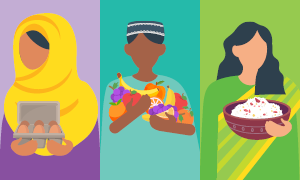
Delivering for Nutrition in South Asia: Transforming Diets
Partnerships and Opportunities to Strengthen and Harmonize Actions for Nutrition in India (POSHAN) led by IFPRI
Hybrid Event: November 9, 2022 – 4:30 PM to November 10, 2022 – 6:30 PM GMT. The purpose of this conference is to synthesize relevant evidence and stimulate dialogue to inform and guide policy and program initiatives in South Asia for improving equitable access to and consumption of healthy diets.
-
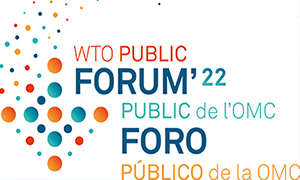
WTO Public Forum “Towards a sustainable and inclusive recovery: ambition to action”
Working Session: Safeguarding access to food in times of crisis
Virtual Event: September 27, 2022 – 11:30 AM to 12:45 PM EDT. This session will explore the extent to which major producing countries of key food commodities will be able to respond to the high food prices and compensate for the export gap created by shortfalls in supplies from Ukraine.
-
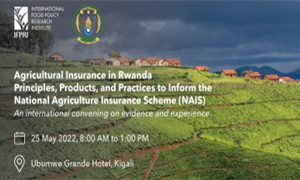
Agricultural Insurance in Rwanda: Principles, Products, and Practices to Inform the National Agriculture Insurance Scheme (NAIS)
An international convening on evidence and experience
Event: May 25, 2022 – 8:00 AM to 1:00 PM CAT. This convening is organized by MINAGRI and IFPRI as a half-day event focusing on two specific themes and is designed to offer new insights and lessons learned in support of NAIS.
-
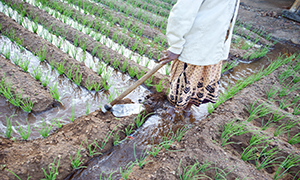
Irrigation Investment Policy: Does Scale Matter?
Virtual Event: May 24, 2022 – 9:30 AM to 11:30 AM EDT. This event will discuss the role of policy and size of irrigation in supporting the poorest food producers and consumers in these challenging times.
-
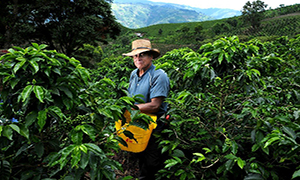
National Policies and Strategies for Food, Land and Water Systems Transformation (NPS)
One CGIAR initiative launch event
Virtual Event: May 17, 2022 – 9:00 AM to May 18, 2022 – 2:00 PM EAT. This event will introduce the NPS initiative and bring together key stakeholders to help plan a specific work program for Kenya in the next three years.
-
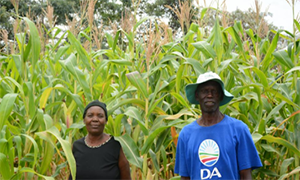
Policy Responses to the Gendered Impacts of COVID-19 in the Africa Region
Co-Organized by IFPRI, Food and Agriculture Organization of the United Nations (FAO) and CGIAR Gender Platform
Virtual Event: Nov 16, 2021 – 08:00 AM to 10:00 AM EST. This policy dialogue explores the gender-differentiated impacts of the COVID-19 pandemic on men and women in rural areas of selected countries in sub-Saharan Africa.
-
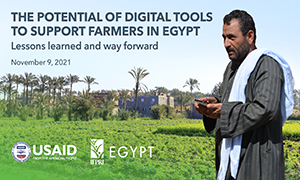
The potential of digital tools to support farmers in Egypt: Lessons learned and way forward
Co-Organized by IFPRI-Egypt and United States Agency for International Development (USAID)
Virtual Event: NOV 9, 2021 – 08:00 AM to 10:30 AM EST. This technical workshop aims to mobilize various actors' efforts as well support the MALR consolidate and mainstream existing digital services in Egypt.
-
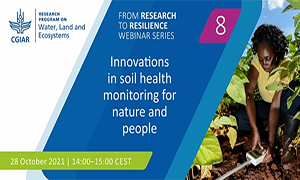
Innovations in soil health monitoring for nature and people
CGIAR Research Program on Water, Land and Ecosystems (WLE)
Virtual Event: OCT 28, 2021 – 08:00 AM to 9:00 AM EDT. This webinar will showcase the latest advances in the monitoring of soil health and land restoration.
-
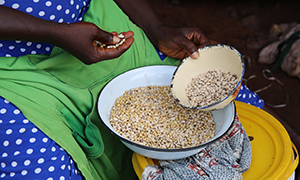
Innovation for Agribusiness (InovAgro) Project Impact Evaluation Results Dissemination Workshop
Virtual Event: OCT 28, 2021 – 02:00 PM to 03:30 PM CAT. This workshop will disseminate the results of the impact evaluation of the InovAgro project's interventions.
-
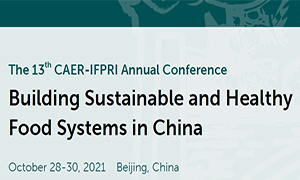
The 2021 CAER-IFPRI Annual Conference
Building Sustainable and Healthy Food Systems in China
Virtual Event: OCT 28, 2021 – 03:00 PM to OCT 31, 2021 – 12:00 PM UTC + 08:00. The conference is a significant gathering of the agricultural economics and rural development community.
-
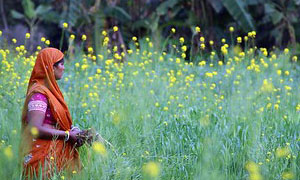
Innovations in agricultural insurance: Lessons learnt about managing smallholder farmer risks
Co-Organized by the CGIAR Research Program on Policies, Institutions, and Markets (PIM) and Food Security Portal (FSP)
Virtual Event: OCT 26, 2021 – 11:00 AM to 12:00 PM EDT. This webinar will present an evaluation of how action oriented research on tools for improving smallholder farmers have spawned further interest by different sector actors.
-
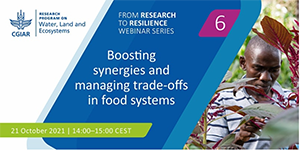
Boosting synergies and managing trade-offs in food systems
CGIAR Research Program on Water, Land and Ecosystems (WLE)
Virtual Event: OCT 21, 2021 – 08:00 AM to 09:00 AM EDT. This webinar discusses evidence, actions and lessons learned on how to leverage biodiversity in our food systems for people and planet.
-
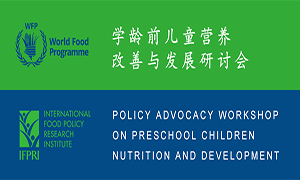
Preschool Children Nutrition and Development
Co-organized by IFPRI and World Food Program (WFP)
Virtual Event: OCT 11, 2021 – 9:30 PM to OCT 12, 2021 5:30 AM EDT. The purpose of this seminar is to share the evaluation results of the Xiangxi project with relevant stakeholders.
-
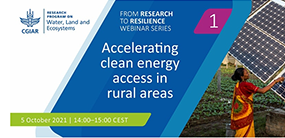
Accelerating clean energy access in rural areas
CGIAR Research Program on Water, Land and Ecosystems (WLE)
Virtual Event: OCT 5, 2021 – 08:00 AM to 09:00 AM EDT. This webinar will present research that can help countries enhance smallholder access to clean energy and address climate adaptation/ mitigation challenges.
-
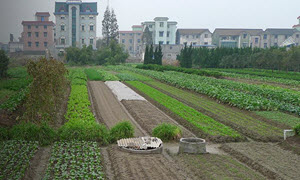
Integrated Urban-Rural Development and Common Prosperity
Co-organized by IFPRI and China Academy for Rural Development, Zhejiang University
Virtual Event: SEP 23, 2021 – 08:00PM to SEP 24, 2021 12:00 AM EDT. This workshop aims to explore China's integrated urban-rural development and to provide knowledge support for realizing common prosperity in China.
-
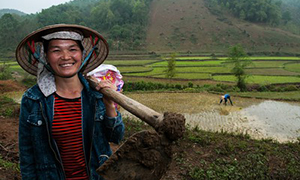
Myths about the feminization of agriculture: Implications for global food security
CGIAR Research Program on Policies, Institutions, and Markets (PIM)
SEP 14, 2021 – 10:00 AM to 11:00 AM EDT. This webinar will present and discuss finding of a new paper on myths about the feminization of agriculture.
-
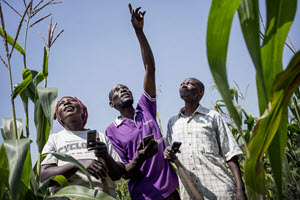
UNFSS Independent Dialogue: The Critical Role of Agricultural Extension in Advancing the 2030 Agenda: Lessons from the Field and Empirical Evidence
Co-Organized by IFPRI and Sasakawa Africa Association (SAA)
Virtual Event: AUG 6, 2021 – 07:00 AM to 09:30 AM EDT. The objective of this dialogue is to come to a common understanding of how extension can contribute to the SDGs and adapt to future needs.
-
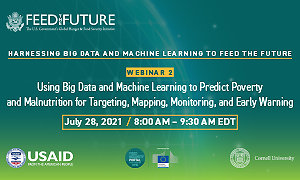
Using Big Data and Machine Learning to Predict Poverty and Malnutrition for Targeting, Mapping, Monitoring, and Early Warning
Co-organized by Cornell University and Food Security Portal of IFPRI
Virtual Event: July 28, 2021 – 08:00 AM to 9:30 EDT. This webinar will highlight the differences between poverty and malnutrition targeting and mapping.
-
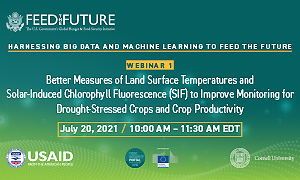
Better Measures of Land Surface Temperatures and Solar-Induced Chlorophyll Fluorescence (SIF) to Improve Monitoring for Drought-Stressed Crops and Crop Productivity
Co-organized by Cornell University and the Food Security Portal of IFPRI
Virtual Event: July 20, 2021 – 10:00 AM to 11:00 AM EDT. This webinar will discuss how satellite remote sensing offers an inexpensive, timely solution to monitor conditions on the Earth's surface.
-
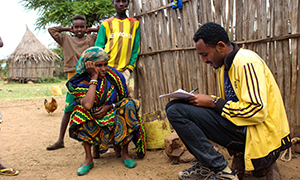
Measuring employment and consumption in household surveys: Reflections from three survey experiments
CGIAR Research Program on Policies, Institutions, and Markets (PIM)
Virtual Event: July 13, 2021 – 10:00 AM to 11:00 AM EDT. This event will discuss how survey efforts are invaluable tools for development practitioners.
-
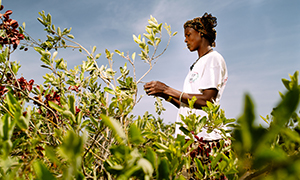
Feminization of Agriculture: Building evidence to debunk myths on current challenges and opportunities
CGIAR Research Program on Policies, Institutions, and Markets (PIM)
Virutal Event: June 10, 2021- 09:00 AM to 10:30 AM EDT. This webinar will present the findings of the dynamics and impacts of migrations on gender relations in agriculture and natural resource domains.
-

UNFSS Independent Dialogue in Egypt: “The Role of Water Security for Food Systems Transformation
Co-Organized by International Food Policy Research Institute (IFPRI), International Water Management Institute (IWMI), and International Center for Agricultural Research in the Dry Area (ICARDA)
Water scarcity remains a key challenge for agricultural development in the MENA region, including Egypt. Scarcity is rapidly growing as a result of climate change and rapid increases in water demand for other uses. Considering that Egypt’s agri-food system provided critical cushioning for economic growth, jobs, and household income negatively impacted by the COVID-19 pandemic, […]
-
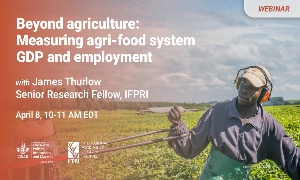
Beyond agriculture: Measuring agri-food system GDP and employment
CGIAR Research Program on Policies, Institutions, and Markets (PIM)
Transformation of the agri-food system is a cornerstone of many governments’ national development plans and is key to the One GGIAR goals of contributing to more inclusive agricultural growth, healthier diets, and more sustainable production systems. Agri-food systems remain crucial for the livelihoods and wellbeing of most of the world’s poor, and successful agricultural transformation […]
-

Climate Change Adaptation and Climate Finance for Egypt’s Agricultural Sector
IFPRI-Egypt Seminar
Both climate change and the COVID-19 pandemic present powerful reminders of the importance of a resilient agricultural sector for ensuring food security and for protecting livelihoods and jobs. Yet, over the past decade, Egypt’s agricultural sector performance and output growth in key food crops has slowed. The future of agriculture in the face of climate […]
-

COVID-19 lessons for rebuilding resilient value chains and agri-food system
IFPRI-Egypt Seminar
The COVID-19 pandemic is an important reminder and rationale for investing in resilient value chains and agri-food systems. The pandemic revealed important vulnerabilities in national and global food systems. Although the pandemic continues to ravish national economies, these impacts vary across sectors and value chains. Most sectors and value chains are being (negatively) affected by […]
-
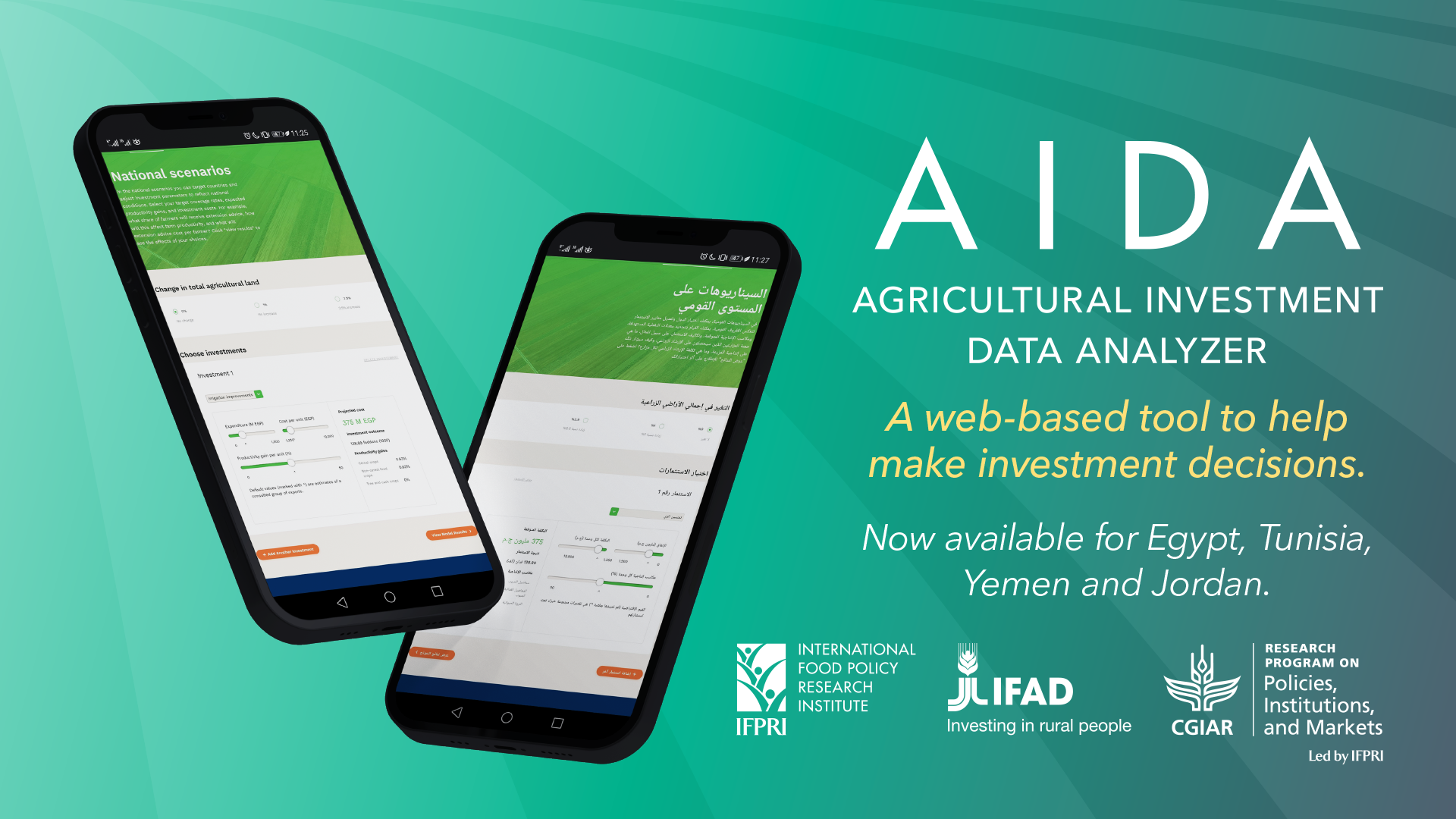
Agricultural Investment Data Analyzer (AIDA): Guiding Agricultural Investments for Higher Impact
Virtual Launch Event at IFAD Innovation Talks
COVID-19 is accelerating the use of digital technology and tools around the world. This trend also provides an opportunity to make complex investment analysis tools more user-friendly and ultimately to promote more evidence-based decision-making among governments. The Agricultural Investment Data Analyzer (AIDA) is the first online tool that uses an economy-wide model to assess the […]
-
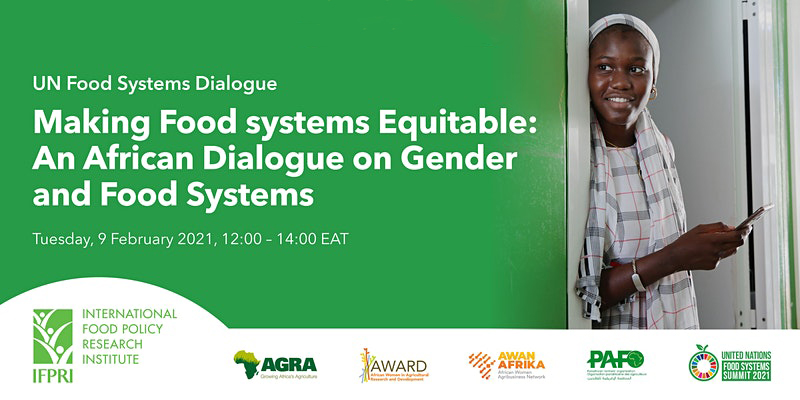
Making Food systems Equitable: An African Dialogue on Gender & Food Systems
Co-Organized by International Food Policy Research Institute (IFPRI), African Women in Agriculture Research and Development, Africa Women in Agribusiness, Alliance for a Green Revolution in Africa, Pan Africa Farmers organization.
In countries where gender norms prevent women from owning property and resources, people are also the hungriest. This is because gender equality and food systems are intertwined. Too often, we only focus on the roles that women play in production, processing, trading of food, and in making decisions about consumption and purchase of food at […]
-
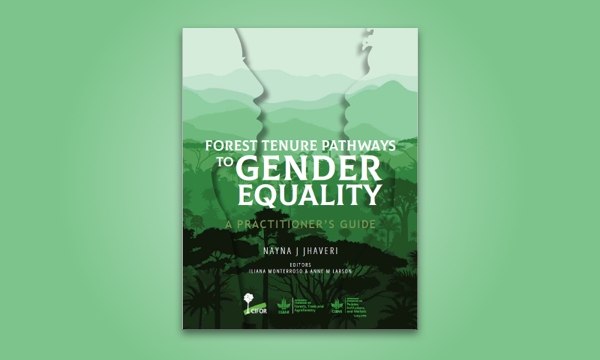
Forest Tenure Pathways to Gender Equality: A Practitioner’s Guide
There is no single approach to reforming forest tenure practices for achieving gender equality and women’s empowerment. Rather, it involves taking advantage of opportunities that emerge in various institutional arenas, such as policy and law-making and implementation, government administration, customary or community-based tenure governance, or forest restoration at the landscape scale. The overall aim is […]
-
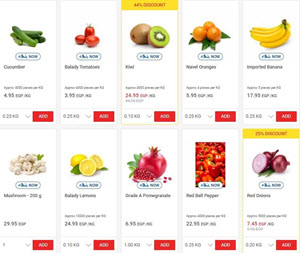
Fostering Digitalization for a Future-Proof Food System in Egypt
IFPRI-Egypt Seminar
Digitization and digital tools provide an opportunity to make food systems more productive and efficient, climate-smart, and inclusive. The COVID-19 pandemic is a strong reminder of the potential of digital tools and digitalization to build resilient and sustainable food systems. Recent studies show that global demand for digital tools has significantly increased during the pandemic, […]
-
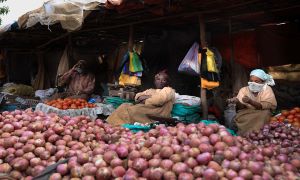
COVID-19 Risk and Food Value Chains
Co-Organized by the CGIAR Research Program on Policies, Institutions, and Markets (PIM) and the Food Security Portal
The short- and long-term impacts of the COVID-19 pandemic on food systems remain uncertain, raising concerns about food security. The pandemic’s public health impacts, as well as the economic and logistical impacts of pandemic response measures such as lockdowns and travel restrictions, have the potential to disrupt food value chains around the globe. Such disruptions […]
-
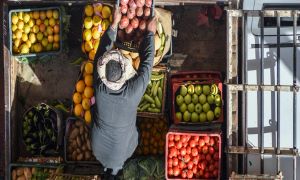
Beyond COVID-19: Recommendations from Five Years of Policy Research in Egypt and Directions for the Future
Recommendations from five years of policy research in Egypt and directions for the future.
Details & Registration
-
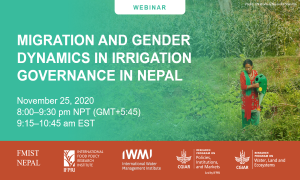
Migration and Gender Dynamics in Irrigation Governance in Nepal
Co-Organized by the CGIAR Research Program on Policies, Institutions, and Markets (PIM), FMIST, IFPRI, IWMI, and WLE
Widespread male migration from rural areas is one of the most important forces shaping agrarian transformation in Nepal. One particularly important area affected is the governance and management of local public goods, especially irrigation systems. Given the crucial role of irrigation in agricultural productivity and food security, attention to gender in irrigation governance is not […]
-
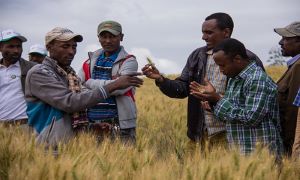
Transforming Seed Marketing – Lessons from Ethiopia
Co-Organized by Ethiopia’s Agricultural Transformation Agency (ATA), the CGIAR Research Program on Policies, Institutions, and Markets (PIM), and the Integrated Seed Sector Development Programme in Ethiopia (ISSD Ethiopia)
Having shifted from centralized seed supply to a growing system of direct seed marketing (DSM), the ways in which farmers in Ethiopia hear about and access quality seed are unrecognizable from just a decade ago. This webinar will share different perspectives on this transformation, highlight innovations – from piloting to scaling and embedding – that […]
-
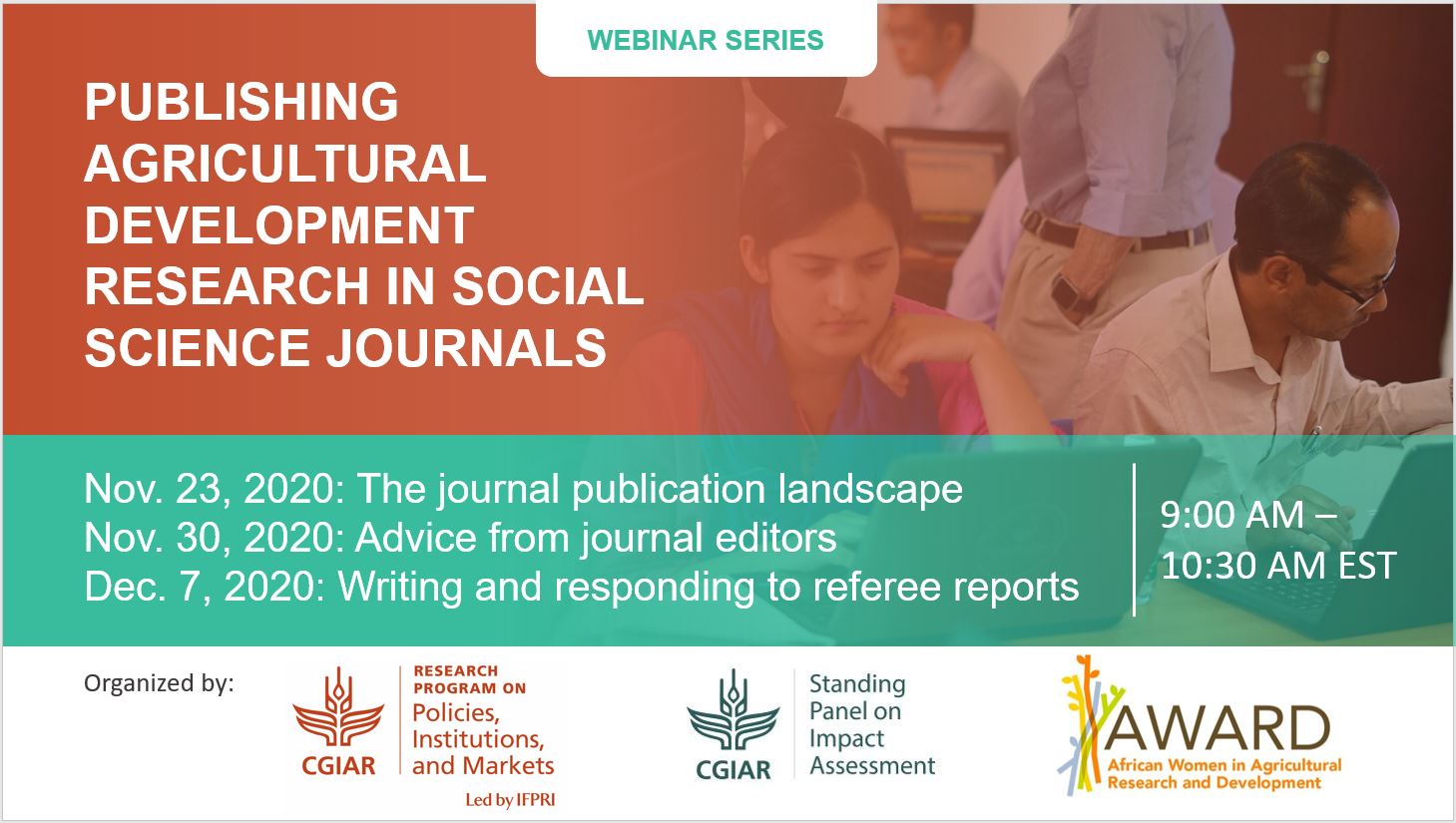
Publishing Agricultural Development Research in Social Science Journals
Co-Organized by the CGIAR Research Program on Policies, Institutions, and Markets (PIM), CGIAR Standing Panel on Impact Assessment (SPIA), and African Women in Agricultural Research and Development (AWARD)
While there are many important ways to disseminate findings from agricultural development research, publishing in reputable, peer reviewed journals is particularly important for researchers as a means to not only showcase their work but also solicit peer input, gauge how their own work compares with that of others, and enhance options for career advancement. Deciding […]
-
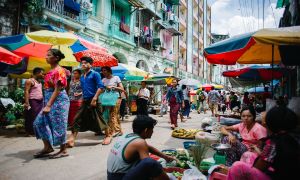
Assessments of the Impacts of COVID-19 on Myanmar’s food security and welfare
While a much stronger second wave of COVID-19 cases poses a serious and sustained threat to the health of the Myanmar population, it also brings renewed economic disruptions and poses new challenges for efforts to avert poverty, food insecurity, and malnutrition. To generate evidence that can better inform the design of emergency response and economic […]
-
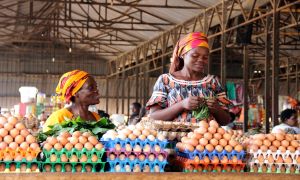
2020 ReSAKSS Conference — Sustaining Africa’s Agrifood System Transformation: The Role of Public Policies
Organized by AKADEMIYA2063, in partnership with the African Union Commission (AUC)
IFPRI is participating in the 2020 ReSAKSS Annual Conference, which will bring together state and nonstate actors to deliberate on the key findings and policy recommendations of the ReSAKSS 2020 Annual Trends and Outlook Report (ATOR). The report reviews how policy regimes have evolved in recent decades; examines the extent to which current policies for agrifood […]
-
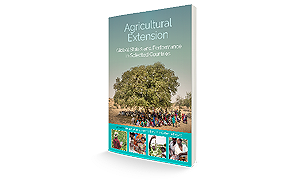
East Africa Perspectives on the Book: Agricultural Extension – Global Status and Performance in Selected Countries
IFPRI Ethiopia and IFPRI Malawi are co-organizing a webinar on the recently launched IFPRI book, “Agricultural Extension: Global Status and Performance in Selected Countries“. The book, edited by Kristin Davis, Suresh Babu, and Catherine Ragasa, provides a global overview of agricultural extension and advisory services and assesses and compares extension systems at the national and regional […]
-
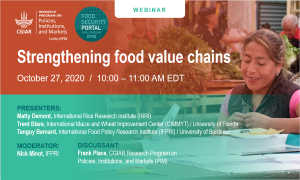
Strengthening Food Value Chains
Co-Organized by the CGIAR Research Program on Policies, Institutions, and Markets (PIM) and the Food Security Portal
Across the developing world, urbanization and income growth are driving massive shifts in consumers’ food preferences and subsequently in the form and functioning of local and regional food value chains. These changes hold great potential for improving livelihoods and food security in developing countries, but they also carry social, economic, environmental, and health risks. A […]
-
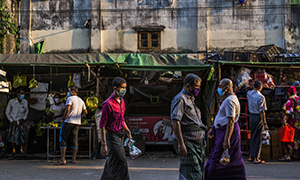
COVID-19 and Food Market Disruptions in Myanmar
The rise of COVID-19 infections and policies imposed to control the spread of the disease might have created significant food market disruptions. Disruptions in food markets are an obvious concern, given the importance of agricultural prices for the income of farmers and food prices for the already lower purchasing power – due to reduced incomes […]
-
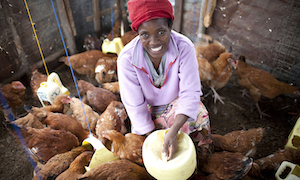
Opening new business doors for ag transformation: Youth entrepreneurship in farm value chains and rural development
Co-Organized by IFPRI and the Syngenta Foundation for Sustainable Agriculture (SFSA)
As entrepreneurs, young people can play a major role in the transformation of agriculture. In developing countries, too few of them currently get the chance. But numerous governments are now creating entrepreneurial agribusiness opportunities through new programs and policies. The private sector, investors and non-profit organizations are also closely involved. Big questions remain to be […]
-
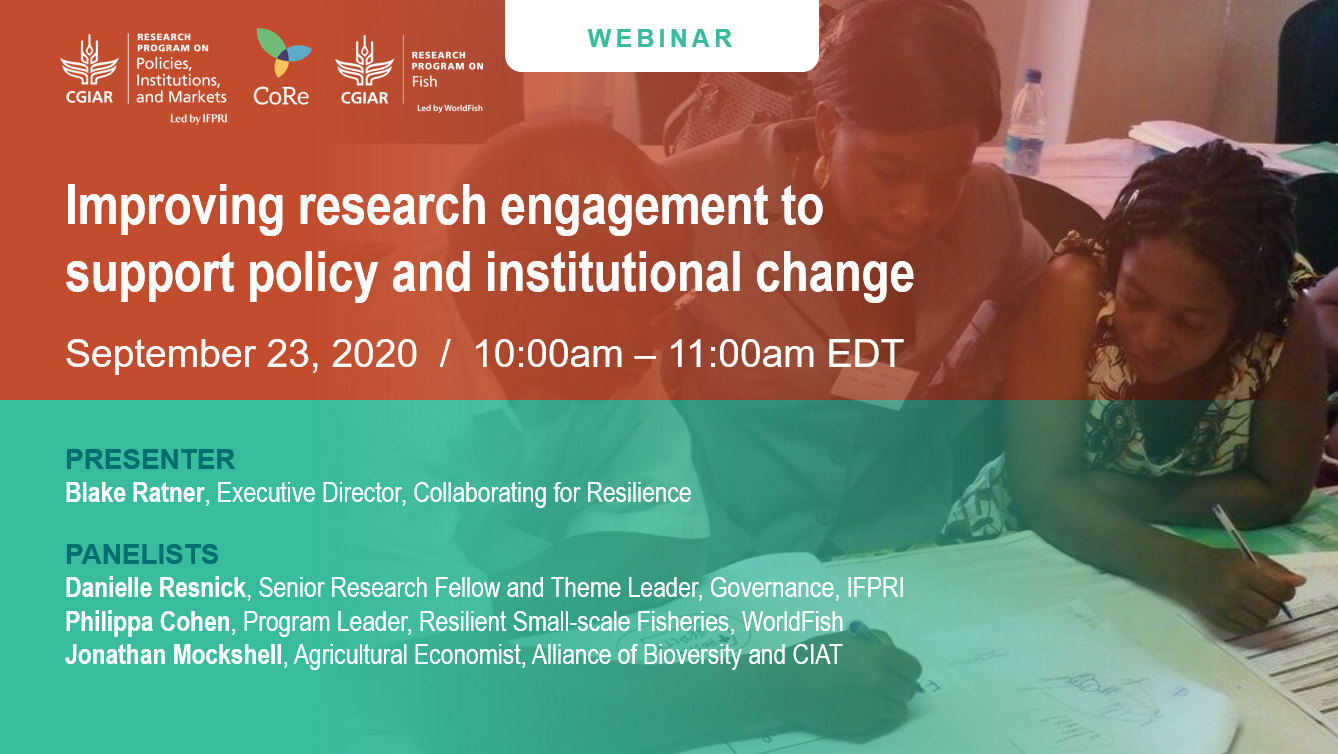
Improving research engagement to support policy and institutional change
Co-Organized by the CGIAR Research Program on Policies, Institutions, and Markets (PIM), the CGIAR Research Program on Fish Agri-Food Systems, and Collaborating for Resilience (CoRe)
Too often, research aiming to inform public policies or strengthen institutions for effective policy implementation remains disconnected from the real political economy of policy and institutional reform. This webinar will introduce a new rubric to assess opportunities for research partnerships that navigate this complex terrain of power and leverage sometimes unexpected spaces of engagement. The rubric […]
-
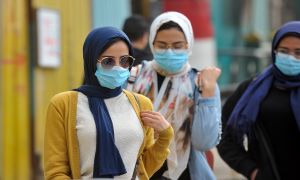
COVID-19 and social protection: From effective crisis protection to self-reliance
IFPRI’s Egypt Strategy Support Program (Egypt SSP) is organizing a seminar on “COVID-19 and social protection: From effective crisis protection to self-reliance.” The economic impacts of the COVID-19 pandemic are increasing poverty around the world. As one of the key immediate policy responses to cushion the negative impacts of COVID-19 on the most vulnerable, many […]
-
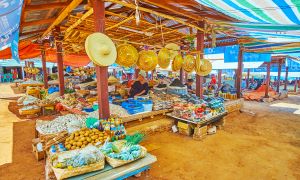
Assessing the Impact of COVID-19 on Food and Nutrition Security in Myanmar
The impacts of the COVID-19 economic crisis are threatening the livelihoods and welfare of vulnerable households in Myanmar. Declining household income, from increases in unemployment and declines in remittances, can have negative long-term effects on the food and nutrition insecurity of households and the overall welfare of vulnerable populations. A deeper understanding of the social […]
-
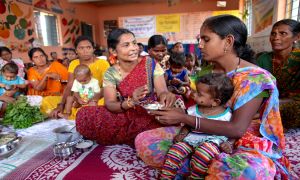
Delivering for Nutrition in India: Insights from Implementation Research
Organized by Partnerships and Opportunities to Strengthen and Harmonize Actions for Nutrition in India (POSHAN) led by IFPRI
Coinciding with the national nutrition month in India, or Poshan Maah, a group of 19 co-hosts are organizing the third India-focused implementation research conference “Delivering for Nutrition in India: Insights from Implementation Research” from 14-18 September 2020. At this event, participants will review evidence to inform the implementation of current policy and program initiatives. They […]
-
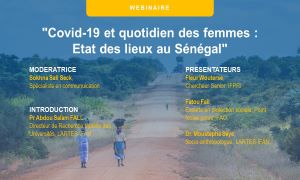
COVID-19 et quotidien des femmes : Etat des lieux au Sénégal
Organisé par L’Institut international de recherche sur les politiques alimentaires (IFPRI) et le Laboratoire de recherche sur les transformations économiques et sociales (LARTES)
L’Institut international de recherche sur les politiques alimentaires (IFPRI) et le Laboratoire de recherche sur les transformations économiques et sociales (LARTES) vous invitent à prendre part au webinaire qu’ils organisent le jeudi 3 septembre 2020 sur le thème : COVID-19 et quotidien des femmes : Etat des lieux au Sénégal. Le premier patient positif à la COVID-19 […]
-
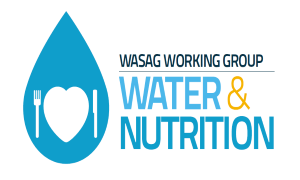
WASAG: Actions for Water and Nutrition Security
A World Water Week 2020 Session
Claudia Ringler, IFPRI’s Deputy Division Director of Environment Production and Technology Division, is participating in a session at World Water Week 2020. This Global Framework on Water Scarcity in Agriculture (WASAG) session introduces the WASAG Working Group on Water & Nutrition; describes guidelines to strengthen nutrition outcomes in irrigation and water resource development projects and provides new […]
-

Assessing the Impact of COVID-19 on Myanmar’s Livestock and Fishery Sectors
Myanmar’s livestock and fishery sectors are crucial to the livelihoods of many vulnerable households, and an important dimension in improving nutritional outcomes in the country. The COVID-19 pandemic and efforts to mitigate its spread have led to disruptions in these sectors arising from declines in incomes and restrictions on movement. Careful monitoring of the impact […]
-
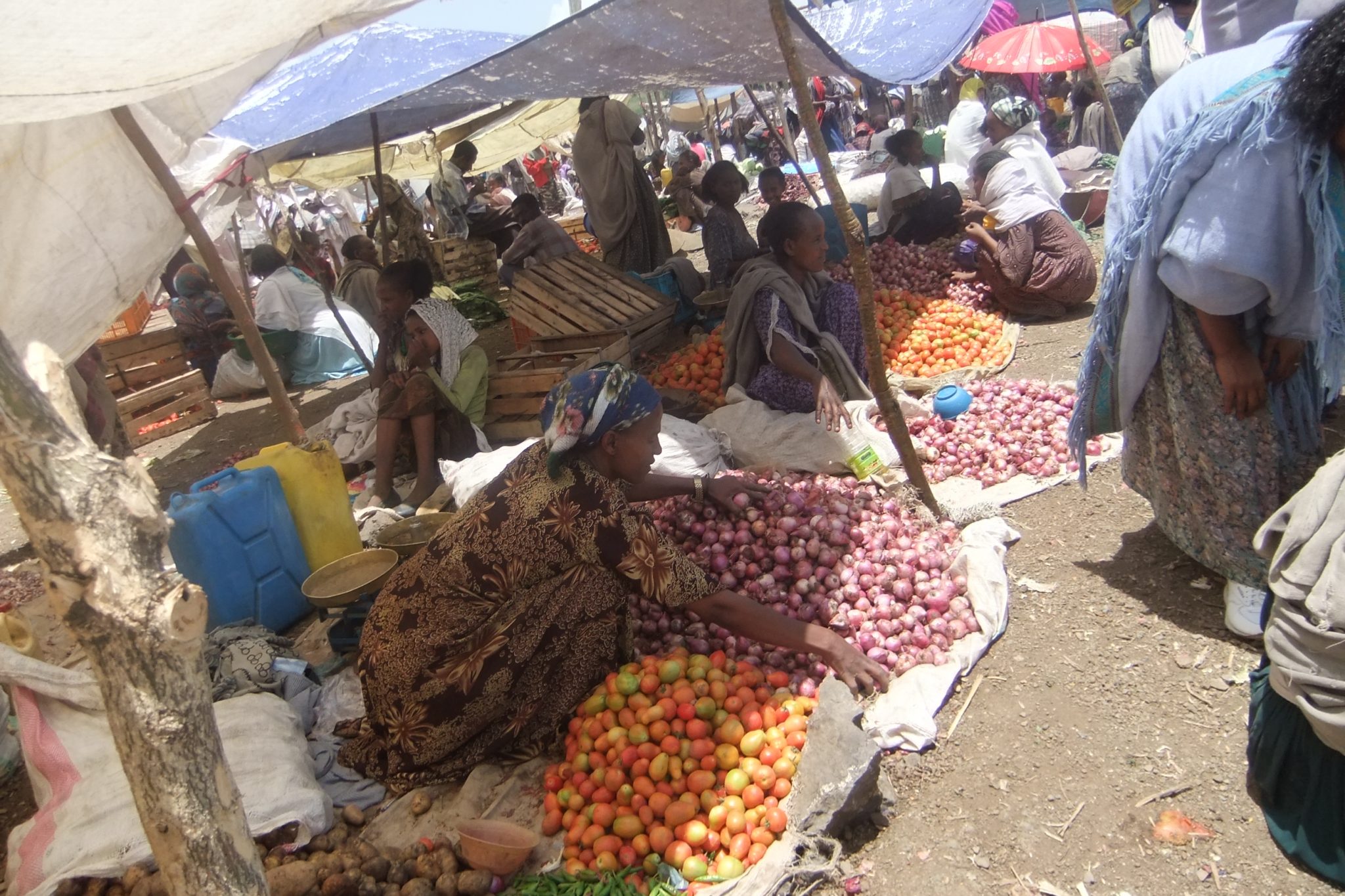
Some Welfare Consequences of COVID-19 in Ethiopia
Co-Organized by IFPRI and the Policy Studies Institute (PSI)
Cross-country experience so far shows that the impact of the COVID-19 pandemic and responses to combat are multidimensional. It is thus reasonable to expect the occurrence of these effects in Ethiopia. Findings of several studies will be reported during this webinar. The presentations focus on the impact of COVID-19 on the welfare of mothers and […]
-
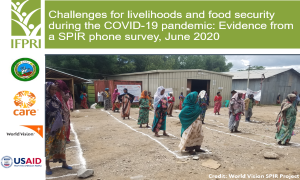
SPIR Learning Agenda: Challenges for livelihoods and food security during the COVID-19 pandemic
The webinar on challenges for livelihoods and food security during the COVID-19 pandemic presents results of a phone survey conducted in early June 2020 of more than 1,100 rural households who are beneficiaries of the fourth phase of Ethiopia’s Productive Safety Net Program (PSNP4) and who also participate in the USAID-funded Strengthening PSNP4 Institutions and […]
-
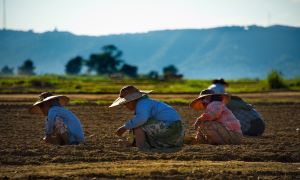
Assessing the Impact of COVID-19 on Myanmar’s Crop Value Chains
Experience with COVID-19 in many countries has revealed the vulnerability of agri-food value chains to disruption arising from declines in incomes and restrictions on the movement of produce, workers or service providers intended to protect health. Careful monitoring of the impact of COVID-19 on agri-food value chains can guide government, private sector and development partners […]
-

Beyond COVID-19: Strengthening Climate Resilience in Egypt’s Agricultural Sector
IFPRI’s Egypt Strategy Support Program (Egypt SSP) is organizing a seminar on research findings from an assessment of alternative adaptation options at the farm and policy levels. On-farm options include, among others, changing planting dates, improved seed technology, and alternative irrigation technologies, to name a few. Off-farm options include enhanced efficiency of farm input delivery and […]
-

Sharing civil society experiences in adapting evidence-based advocacy
Co-Organized by the Government of the Netherlands Ministry of Foreign Affairs, IFPRI, and SNV
IFPRI’s Deputy Division Director of Markets, Trade, and Institutions Nicholas Minot is participating in the webinar, “Sharing civil society experiences in adapting evidence-based advocacy” on July 15, 2020. The COVID-19 pandemic has caused a seismic shift in the way our world operates. How can civil society use evidence-based advocacy to effectively contribute to inclusive recovery […]
-
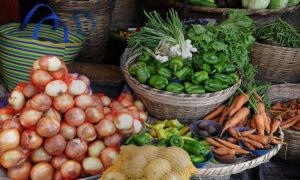
5th Annual Agriculture, Nutrition & Health (ANH) Academy Week
Coordinated by IMMANA, CGIAR Research Program on Agriculture for Nutrition and Health (A4NH), London School of Hygiene & Tropical Medicine (LSHTM), and the London Centre on Integrative Research in Agriculture and Health (LCIRAH)
IFPRI is participating in ANH Academy Week that will bring together a community of researchers, practitioners and policymakers from across the world working at the intersection of agriculture, nutrition and health to foster knowledge exchange, innovation and learning, touching on COVID-19’s impacts on our shared work. Presenter(s) Title Date Time John McDermott Welcome Remarks 30-Jun 9:00am John […]
-
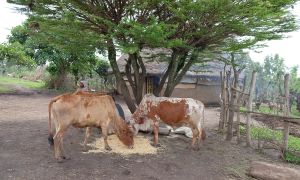
Improving evidence for better policy making in Ethiopia’s livestock sector
Co-Organized by IFPRI, EIAR, and PSI
In collaboration with the Livestock Systems Innovation Lab (LSIL), the International Food Policy Research Institute (IFPRI) has been doing collaborative work over the last 3 years with the Ethiopian Institute of Agricultural Research (EIAR) and Policy Studies Institute (PSI) to study the livestock sector in Ethiopia. Analysis has been done on the consumption and markets […]
-
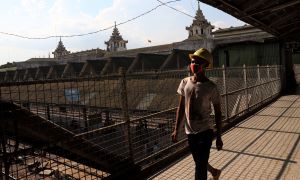
Assessing the Impact of COVID-19 on Myanmar’s Economy and the Impact of Falling Remittances on Poverty
COVID 19 and the mitigation policies imposed to control the spread of the disease have resulted in unexpected shocks to Myanmar’s economy. When industries and businesses must suspend operations, such policies have the potential to create catastrophic direct impacts on economic sectors. Additionally, COVID-19 pandemic impacts the remittances that Myanmar households receive from domestic and […]
-

Economic Impacts of COVID-19 on Growth, Poverty and Food Systems in Malawi: Initial Results
IFPRI-Malawi is organizing a webinar on initial results undertaken by IFPRI of the modeling of the short-term economic impacts of COVID-19 in Malawi. Two scenarios are considered: (a) 2 months of social distancing plus external shocks in April/May; (b) the proposed (but not implemented) 21-day lockdown plus social distancing and external shocks, each followed by either fast or […]
-
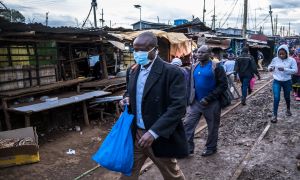
How are African governments responding to avert a COVID-19 hunger crisis?
Ceres2030– a joint initiative by IISD, the International Food Policy Research Institute (IFPRI), and Cornell University –provides the donor community with a menu of policy options for directing their investments, backed by the best available evidence and economic models. With the global economy reeling from COVID-related measures, the world faces the risk of a dramatic rise […]
-
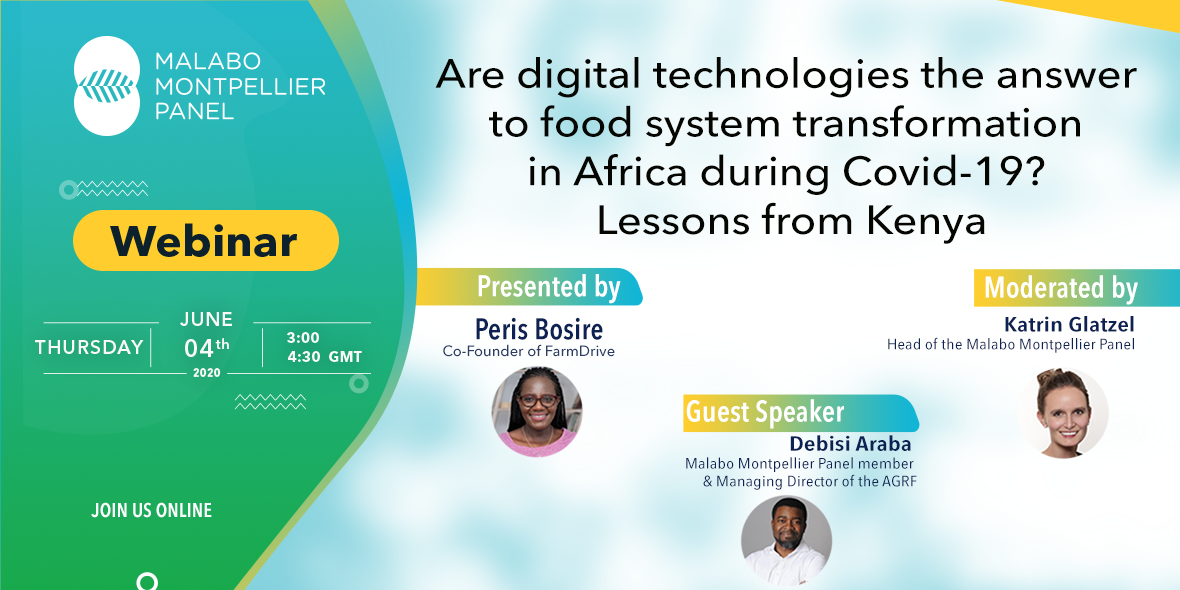
Are digital technologies the answer to food system transformation in Africa during Covid-19? Lessons from Kenya
During this webinar, insights will be shared on the strong institutional, policy and programmatic developments that are making Kenya one of the frontrunners on agricultural digitalization across the continent and how digital technologies can provide some immediate and longer-term answers to securing food supplies in Africa’s urban areas in the context of COVID- 19. Discussions […]
-
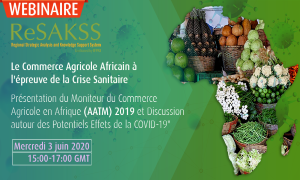
African Agricultural Trade under the Health Crisis Pressure: Presentation of the 2019 African Agricultural Trade Monitor (AATM) and Discussion around the Potential Effects of Covid-19
The AATM 2019 presents a description of the most important barriers to the integration of trade in Africa, a presentation of successful trade agreements and less efficient agreements at regional level, an identification of the most competitive sectors and a study of the characteristics of specialization. by sector. The report also offers an assessment of […]
-
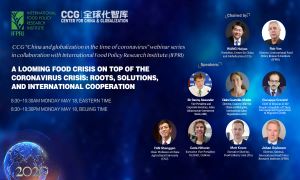
A looming food crisis on top of the coronavirus crisis: Roots, solutions, and international cooperation
Co-Organized by the Center for China and Globalization (CCG) and IFPRI
The ongoing global outbreak of COVID-19, which so far has infected some 4 million and killed over a quarter of a million people worldwide, continues to cause havoc on the global economy and is putting pressure on health systems. There are also increasing concerns that this health crisis could turn into a food crisis. The […]
-
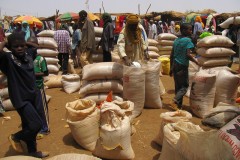
Near-Real-Time Monitoring of Food Crisis Risk Factors: State of Knowledge and Future Prospects
Organized by the Food Security Portal (FSP)
On May 8, the Food Security Portal will host a webinar on important food crisis risk monitoring efforts. The event will highlight priority research and policy questions, identify gaps in existing monitoring efforts, and pinpoint opportunities for collaboration to inform policy. Food security and nutrition security, particularly in low-income countries, continue to face significant challenges, from […]
-
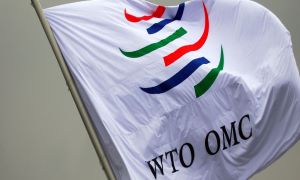
Domestic support disciplines for the 21st century: A blueprint for the WTO 12th Ministerial Conference
Organized by the CGIAR Research Program on Policies, Institutions, and Markets (PIM)
This webinar will consider several scenarios based on the current global situation and the communications on the domestic support plans submitted by countries in preparation for the upcoming WTO Ministerial Conference.
-
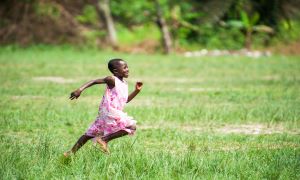
Analysis of nutrition research networks in West Africa: Application of social network analysis to co-authorship data to understand and enhance collaboration
This webinar will present results from social network analysis (SNA) of nutrition networks in West Africa. A sub-component of the systematic review, this work applies SNA to authorship and affiliation data collected for the review to illuminate the patterns of collaboration and the structures of collaborative networks. The results highlight how SNA can be used […]
-
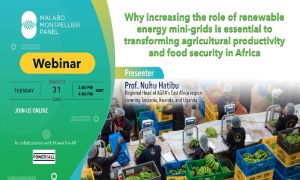
Why increasing the role of renewable energy mini grids is essential to transforming agricultural productivity and food security in Africa
Malabo Montpellier Webinar Series
This webinar will explore opportunities for synergies between the expansion of mini-grids and strengthening Africa’s agricultural value chains. The Malabo Montpellier Panel’s 2019 report Energized focuses on what six African countries – Ethiopia, Ghana, Morocco, Senegal, South Africa, and Zambia – have done successfully in terms of institutional and policy innovation for energy expansion in support […]
-
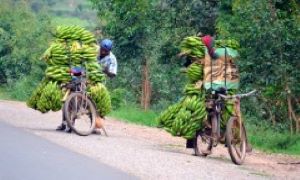
Rwanda National Policy Dialogue: Building Productive Capacities for Rwanda’s Agricultural Transformation, Rural Development, and Food Security
Co-Organized by the Ministry of Agriculture and Animal Resources (MINAGRI), the Economic Policy Network of Rwanda (EPRN), IFPRI, and Compact 2025
The Food Security Portal, in partnership with the Economic Policy Research Network Rwanda (EPRN), will hold a one-day national policy dialogue on building Rwanda’s productive capacities. The event will be a follow-on to the 6th EPRN Annual Economic Research Conference and will emphasize engaging up-and-coming members of the policy and research communities, including mid-level policy […]
-
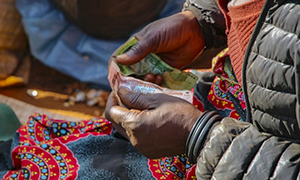
Integrated Cash Transfer Programs in West Africa: How to make cash transfer programs more nutrition sensitive?
IFPRI West and Central Africa Office and the Poverty, Health and Nutrition Division (PHND) will be hosting a policy seminar on Integrated Cash Transfer Programs in West Africa to provide evidence on the impacts of integrated programs implemented in West Africa and discuss program design and policy options to make them more nutrition-sensitive. The use […]
-

Together for Nutrition: West African Data Forum
Co-Organized by IFPRI, Transform Nutrition, Data DENT, UNICEF, Alive & Thrive, Countdown to 2030, National Information Platforms for Nutrition (NiPN), Economic Community of West African States (ECOWAS), USAID, and World Health Organization (WHO)
The objective of this forum is to convene key actors who engage with or support the data value chain for nutrition in the West Africa region, in order to:
-
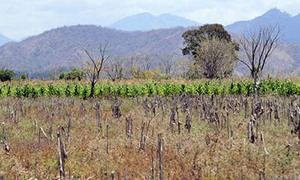
Climate Change and Agriculture in Central America and the Andean Region
Organized by the CGIAR Research Program on Policies, Institutions, and Markets (PIM)
Climate change poses a threat to food security and nutrition, largely through its impacts on agricultural production. To help developing countries identify where adaptation measures are most needed, IFPRI, with support from the CGIAR Research Programs on Policy, Institutions, and Markets (PIM) and Climate Change, Agriculture, and Food Security (CCAFS), conducted a multiyear study to […]
-
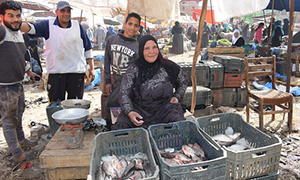
Food Policies and their Implications on Overweight and Obesity Trends in Selected Countries in MENA Region
Co-Organized by IFPRI-Egypt and the Food and Agriculture Organization of the United Nations (FAO)
The Middle East and North Africa (MENA) region countries are known for high levels of overweight and obesity. Most predictions suggest that the rates of overweight and obesity have been increasing and are expected to reach alarming rates in the next few decades; there are several explanations that justify why. This seminar aims to shed […]
-
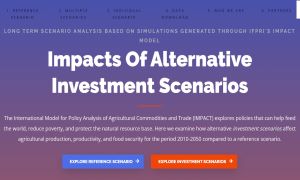
Launching the Global Foresight for Food and Agriculture Tool
Co-Organized by the Food Security Portal, IFPRI, and the CGIAR Research Program on Policies, Institutions, and Markets (PIM)
Join the Food Security Portal (FSP), International Food Policy Research Institute (IFPRI), and CGIAR Research Program on Policies, Institutions, and Markets (PIM) in the launch of the global foresight tool Impacts of Alternative Investment Scenarios. The tool was recently developed by IFPRI’s IMPACT model team and the FSP. The Global Foresight tool provides researchers and […]
-
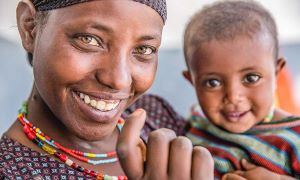
National Nutrition Conference in Ethiopia: Diets, Affordability and Policy in Ethiopia: From Evidence to Action
Co-Organized by IFPRI, Policy Studies Institute (PSI), Ethiopia Public Health Institute (EPHI), and the CGIAR Research Program on Agriculture for Nutrition and Health (A4NH)
Despite progress, many children in Ethiopia remain stunted, diet diversity continues to pose a challenge, and food systems are changing rapidly. To support the implementation of Ethiopia’s National Food and Nutrition Policy (NFNP), IFPRI, Policy Studies Institute (PSI), Ethiopia Public Health Institute (EPHI), and the Agriculture for Nutrition and Health (A4NH) program will present new […]
-
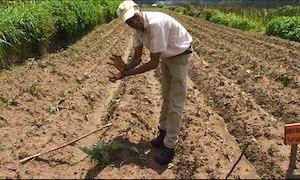
Rwanda Strategy Support Program: Enhancing Capacity for Evidence-Based Policy to Accelerate Agricultural Transformation and Rural Development
The proposed Rwanda Strategy Support Program is an initiative aligned with the Government of Rwanda’s vision for accelerating agricultural transformation and rural development throughout the country. The program will assist the implementation of the 2018–2024 Strategic Plan for Agricultural Transformation through policy analysis, capacity development, and partnership. Welcome Keynote Address on the Collaborative Agenda Overview […]
-

Digital Technologies for Agricultural Transformation – Case of Senegal
Malabo Montpellier Webinar Series
The Malabo Montpellier Panel’s last report, Byte by Byte: Policy innovation for transforming Africa’s Food system with digital technologies has presented experiences from 7 African countries. Join us on November 22nd to learn more from the Senegal’s case study with interventions from Mr. Seth Sall, Head of Digital Economies and Partnerships Division at the Ministry […]
-
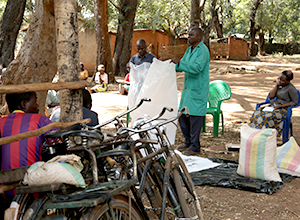
Assessing and Strengthening Malawi’s Pluralistic Agricultural Extension System: Evidence and Lessons from a 3-year Research Study on Agricultural Extension
Co-Organized by IFPRI and the Department of Agricultural Extension Services of the Flanders Government
On November 13, 2019 IFPRI is organizing a project closing and dissemination event to present findings from a 3-year research study conducted by IFPRI, with funding from the Government of Flanders, CGIAR Research Program on Policies, Institutions and Markets (PIM), GIZ, and USAID Strengthening Agricultural and Nutrition Extension (SANE). Launched in July 2016, the 3-year […]
-
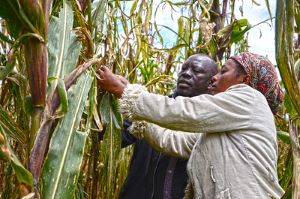
Future Extension: Innovations and Evidence
Co-Organized by the CGIAR Research Program on Policies, Institutions, and Markets (PIM), Feed the Future Developing Local Extension Capacity (DLEC) project, and the International Food Policy Research Institute (IFPRI)
After decades of neglect, agricultural extension and rural advisory services are at the center of global conversations about sustainable agriculture, resilient livelihoods, and inclusive growth. Whether the discussion is on reaching farmers at scale, covering the last mile, transforming smallholder systems, or digitizing public service delivery, we find that extension systems have a role to […]
-
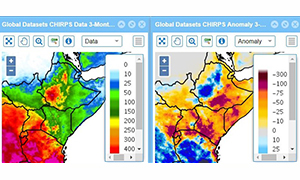
Using Satellite Imagery for Early Warning of Productivity Constraints
Organized by the Food Security Portal (FSP)
On October 31, the NASA Harvest Consortium in collaboration with the Food Security Portal will hold a webinar to discuss the potential of satellite imagery for food crisis early warning systems. This webinar will provide an opportunity to share the current state of knowledge and to identify areas new or further collaboration. The 2019 Global […]
-
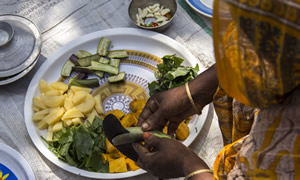
2019 RESAKSS-Asia Conference: Evolving Agrifood Systems in Asia
Co-Organized by the Regional Strategic Analysis and Knowledge Support System for Asia (ReSAKSS-Asia) led by IFPRI, and the Myanmar Institute for Integrated Development (MIID)
The Regional Strategic Analysis and Knowledge Support System for Asia (ReSAKSS-Asia) facilitated by the International Food Policy Research Institute (IFPRI), and the Myanmar Institute for Integrated Development (MIID), are organizing an international conference entitled, “Evolving Agrifood Systems in Asia: Achieving food and nutrition security by 2030,” with the financial support of USAID. The primary objective […]
-
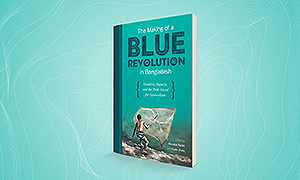
The Launching Ceremony of “The Making of a Blue Revolution in Bangladesh: Enablers, Impacts, and the Path Ahead for Aquaculture”
Welcome Address Remarks on the Book Remarks on the Book by the Special Guest Remarks by the Special Guest Remarks by the Guest of Honor Remarks by the Chief Guest Closing Remarks by the Chair Vote of Thanks Please note this event will be livestreamed.
-
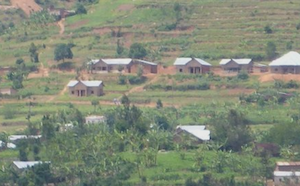
Changing Farm Structure and Rural Transformation in Africa
The study discussed during this webinar presents evidence of profound farm-level transformation in parts of Sub-Saharan Africa, identifies the key sources of dynamism in the sector, and proposes an updated typology of farms that reflects the evolving nature of African agriculture. The rise of medium-scale farms is affecting the region in diverse ways that are […]
-
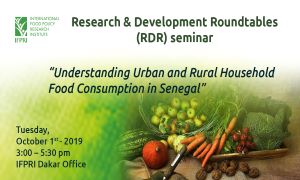
Understanding Urban and Rural Household Food Consumption in Senegal
Co-Organized by IFPRI, Institut Sénégalais de Recherches Agricoles (ISRA), Université Alioune Diop de Bambey (UADB), Université Cheikh Anta Diop de Dakar (UCAD), Université Gaston Berger (UGB), and Université du Sine Saloum El Hadj Ibrahima NIASS (USSEIN)
Using household consumption data collected in 2017/18, this chapter analyzes patterns of urban and rural food consumption in Senegal. We adopt two methodological approaches. The first is an in-depth (spatial) analysis of current diets and corresponding nutrient deficiencies, coupled with an identification of possible food items to address existing nutrient gaps. The second approach is […]
-
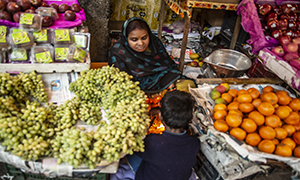
Delivering for Nutrition in India: Insights from Implementation Research
Co-Organized by IFPRI, the National Institute of Nutrition, NITI Aayog, Alive & Thrive (A&T), Bill & Melinda Gates Foundation, CIFF, UNICEF, World Bank, and The India Nutrition Initiative (TINI)
Coinciding with the national nutrition month, this event is being jointly organized by the International Food Policy Research Institute (IFPRI), the National Institute of Nutrition, and NITI Aayog. It is also supported and co-hosted by Alive & Thrive (A&T), Bill & Melinda Gates Foundation (BMGF), Children’s Investment Fund Foundation (CIFF), United Nations Children’s Fund (UNICEF), […]
-
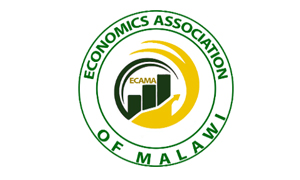
2019 ECAMA Research Symposium: Inclusive and Sustainable Economic Development – Envisioning Wealth for All
Co-Organized by the National Planning Commission (NPC), Malawi Strategy Support Program of the International Food Policy Research Institute (IFPRI), University of Malawi (UNIMA), the Government of Malawi, and the European Union (EU)
The Economics Association of Malawi (ECAMA), in collaboration with the National Planning Commission (NPC), Malawi Strategy Support Program of the International Food Policy Research Institute (IFPRI), University of Malawi (UNIMA), the Government of Malawi, and the European Union (EU) have organized a third joint research symposium. It will bring together local and international researchers, policy […]
-
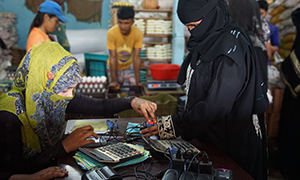
Linking Climate Change, Gender and Nutrition: Approaches, Highlights and the Way Forward (under the GCAN Initiative)
Addressing gender inequalities, improving resilience, and promoting nutrition are all important goals, which many organizations are asked to “mainstream” throughout their programming. But how do these interact, and how do they influence agricultural growth, poverty alleviation and resilience, especially gender and nutrition? To address this integration challenge, the Gender, Climate Change and Nutrition Integration Initiative […]
-
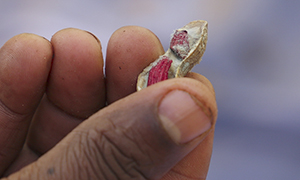
Aflatoxins: The Climate, Gender and Nutritional Linkages (under the GCAN Initiative)
Aflatoxin levels and impacts are expected to increase with higher temperatures and increased water stress, particularly in tropical and sub-tropical climates. Two key avenues to address this challenge include minimizing contamination in the growing cycle through the use of good agricultural practices and by mitigating toxin development in the postharvest supply chain; and reducing the […]
-
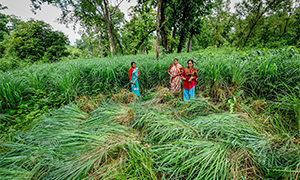
The investment effects of forest rights devolution
Organized by the CGIAR Research Program on Policies, Institutions, and Markets (PIM)
Local communities and indigenous peoples manage a significant portion of the world’s remaining forests, pastures, and fisheries as common property resources. Devolving ownership, use, and exclusionary rights to communities can, in many circumstances, provide incentives for them to manage resources in ways that facilitate sustainable management outcomes as well as greater equity in benefits distribution. […]
-
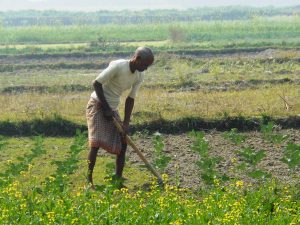
Regional Dialogue – Innovations for Advancing Farmer’s Use of Balanced Nutrient Application in South Asia
Co-Organized by USAID, Bill & Melinda Gates Foundation, CIMMYT, CSISA, IFPRI, and IRRI
CSISA, with additional support from USAID/Nepal funded and CIMMYT led Nepal Seed and Fertilizer Project, is organizing a Regional Dialogue on “Innovations for Advancing Farmers’ Use of Balanced Nutrient Application in South Asia” on September 5, 2019, in Kathmandu, Nepal. The primary objective of the dialogue is to learn from varied experiences of different countries […]
-
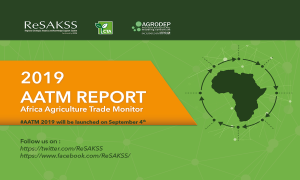
Launch of the 2019 Africa Agriculture Trade Monitor (AATM) Report
Co-Organized by IFPRI and the Center for Technical and Rural Cooperation (CTA)
IFPRI and CTA will be launching the second edition of the African Agriculture Trade Monitor report during a High-level Panel on Regional Food Trade Policy. The release of the AATM 2019 will coincide with the launch of the Regional Food Trade Platform which is one of the critical moments of this Policy Symposium session.
-
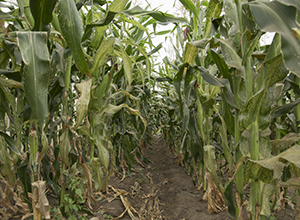
Crop Genetic Diversity Conversation, Exchange, and Use: A Convening on Measuring the Global Consequences of Inaction
Co-Organized by IFPRI, Crop Trust, International Treaty on PGRFA, and CGIAR Research Program on Policies, Institutions, and Markets
DAY 1: AUGUST 26, 2019 Session 1: Welcome and Introductions The Genesis of a Convening on Measuring the Global Consequences of Inaction on Crop Genetic Diversity Why we Need to Understand the Costs of Inaction on the Conservation, Exchange, and Use of Plant Genetic Resources for Food and Agriculture Q&A Session 2: From Crop Genetic […]
-
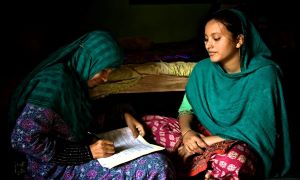
Changes of selected indicators from 2011/12 baseline to 2018/19 endline for the Feed the Future (FTF) Zone of Influence in Bangladesh
On July 23, 2019, the Bangladesh Policy Research and Strategy Support Program (PRSSP) and the US Agency for International Development (USAID) are co-organizing an interactive review of changes of selected indicators from 2011/12 baseline to 2018/19 endline for the Feed the Future (FTF) Zone of Influence, using data from two rounds of PRSSP’s Bangladesh Integrated Household […]
-

Market Systems Development Best Practices Dissemination Workshop
Co-Organized by the Swiss Agency for Development and Cooperation (SDC), and Development Alternatives Inc. (DAI)
SDC contracted IFPRI to conduct an independent quantitative impact assessment of the effects of InovAgro, an MSD project. The study, which had a baseline in 2015, longitudinally measures the impact on families of InovAgro’s approach to developing market systems for livelihoods of rural families in the value chains of soybean and pigeon peas in northern Mozambique. One […]
-
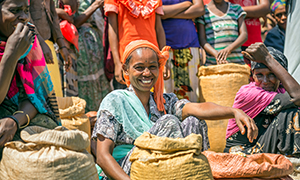
17th International Conference on the Ethiopian Economy
Co-Organized by the Ethiopian Economics Association (EEA) and IFPRI
IFPRI is participating in the Ethiopian Economic Association (EEA) 17th International Conference on the Ethiopian Economy. The EEA is a not-for-profit association serving the professional interests of members working in agricultural and broadly related fields of applied economics. Members of the EEA are employed by academic or government institutions, as well as in industry and not-for-profit […]
-
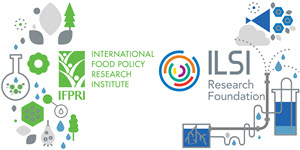
Addressing Water Variability and Scarcity: The Role of Agricultural Research
Co-Organized by IFPRI and the ILSI Research Foundation
The Environment and Production Technology Division, International Food Policy Research Institute (IFPRI) and the ILSI Research Foundation are co-organizing the symposium Addressing Water Variability and Scarcity: The Role of Agricultural Research at IFPRI’s headquarters in Washington, DC. Presentations will focus on new technologies that are being developed and/or applied to mitigate the impacts of water […]
-
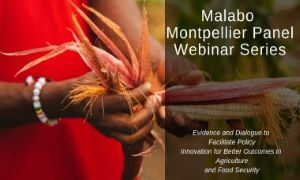
How is Rwanda Transforming its Agriculture Thanks to Mechanization?
Discussion of Lessons from Policy and Program Interventions
The Malabo Montpellier Panel’s report, “Mechanized: Transforming Africa’s Agriculture Value Chains” shows what can be done to sustainably mechanize African agriculture to increase production and enhance value addition across value chain segments. The report summarizes the findings of a systematic analysis of what countries have done right in terms of policy design, institutional innovation and interventions […]
-
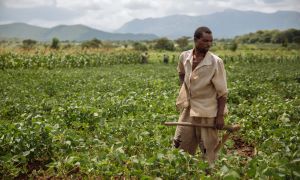
Land Tenure and Perceived Tenure Security in the Era of Social and Economic Transformation in Africa
Organized by the CGIAR Research Program on Policies, Institutions, and Markets (PIM)
Access to land and land tenure security are increasingly important for young people in Africa where population pressure has reduced the land frontier. In this webinar, we will discuss findings from a recent set of studies in Ethiopia, Malawi, Mozambique, and Nigeria that examined land access and perceived tenure security across various market, ecological, demographic, […]
-
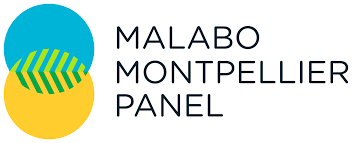
The Malabo Montpellier Forum
Digitalization in African Agriculture
The 2019 Malabo Montpellier (MaMo) Forum will focus on Digitalization in African agriculture and is supported by a technical report analyzing the experience of African countries, which are at the forefront of the application of digital innovations in the agriculture sector. During the Forum, participants will discuss the policy, institutional and programmatic factors which have led […]
-
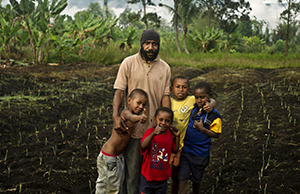
Linkages of Agriculture, Nutrition and Economic Development
Co-Organized by IFPRI, University of Papua New Guinea (UPNG), Institute of National Affairs (INA), Australian National University (ANU), and Department of Foreign Affairs and Trade
Approximately 80 percent of the population in PNG is semi-dependent on subsistence agriculture, however limited economic analysis exists to inform policy priorities aimed at sustainable growth and poverty reduction in rural areas. Renewed efforts to inform overall agricultural production and resilience in Papua New Guinea have taken place over the last several years. This workshop […]
-
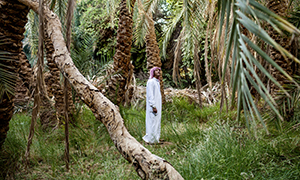
Digital Tools for Better Rural Investments: The Agricultural Investment Data Analyzer
Co-Organized by the International Fund for Agricultural Development (IFAD) and IFPRI
Building on the previous IFAD-IFPRI-PIM (CGIAR Research Program on Policies, Institutions, and Markets project), “Decreasing Vulnerability to Conflict in Arab Countries through Rural Development,” the Agricultural Investment Data Analyzer (AIDA) project will develop a set of forward-looking planning and evaluation tools to help improve the efficiency, effectiveness, and scaling up of rural development policies and projects. […]
-
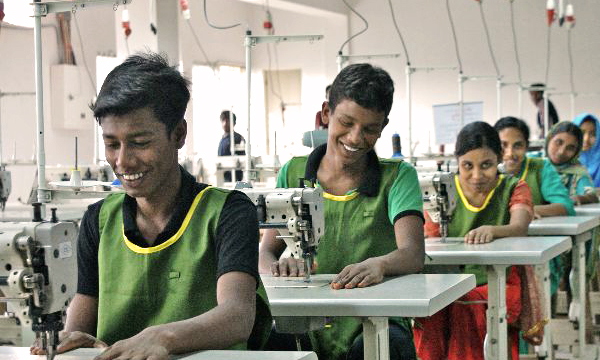
Determinants of Rural Youth Migration Throughout the Developing World
Organized by the CGIAR Research Program on Policies, Institutions, and Markets (PIM)
The decision of whether to migrate or not is one of many important decisions that young men and women make throughout the developing world. In this webinar, we will discuss determinants of internal migration by youth within five different countries (Bangladesh, Indonesia, Nigeria, Pakistan, and Tanzania) using recently collected data, investigating both broad and specific […]
-
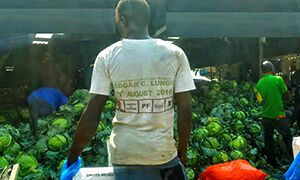
Power, Politics, and Governance in the Food System: Applications to Africa
Organized by the CGIAR Research Program on Policies, Institutions, and Markets (PIM)
Growing interest by the development community in stimulating transformation throughout the agri-food system in Africa implies a more complex role for the region’s governments. Such roles include not only creating an enabling environment for the private sector but re-orienting public expenditures, resolving coordination failures, and regulating food safety. This webinar will draw on case studies […]
-
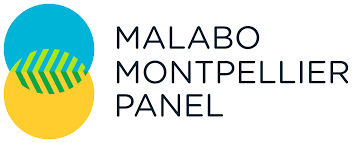
Transforming Africa’s Agriculture Value Chains Through Mechanization
An agricultural mechanization agenda should harness the opportunities for mechanization at each stage of the agriculture value chain. Successful mechanization along the value chain will have to be a priority in future development and growth agendas for African smallholder agriculture and will require not only new technologies but also organizational innovations, such as reliable services […]
-
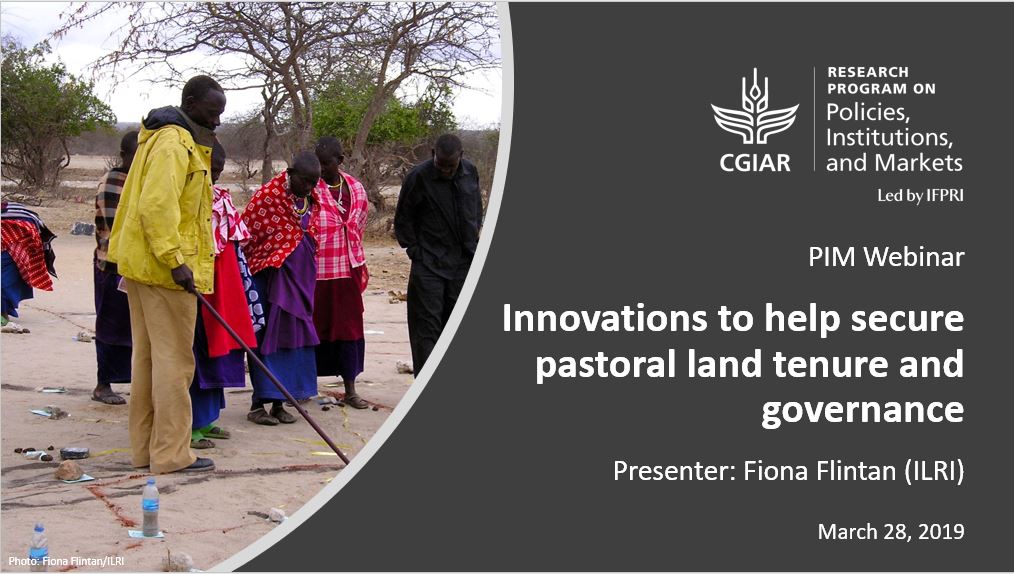
Innovations to Help Secure Pastoral Land Tenure and Governance
Organized by CGIAR Research Program on Policies, Institutions, and Markets (PIM)
How best to secure land tenure for pastoralists is an ongoing challenge for governments, practitioners, lawyers, academics, and communities themselves. As a result, pastoral lands continue to be encroached, fragmented, excised, and lost whilst all important mobility of people and livestock is blocked. The International Livestock Research Institute (ILRI) supported by two CGIAR research programs: […]
-
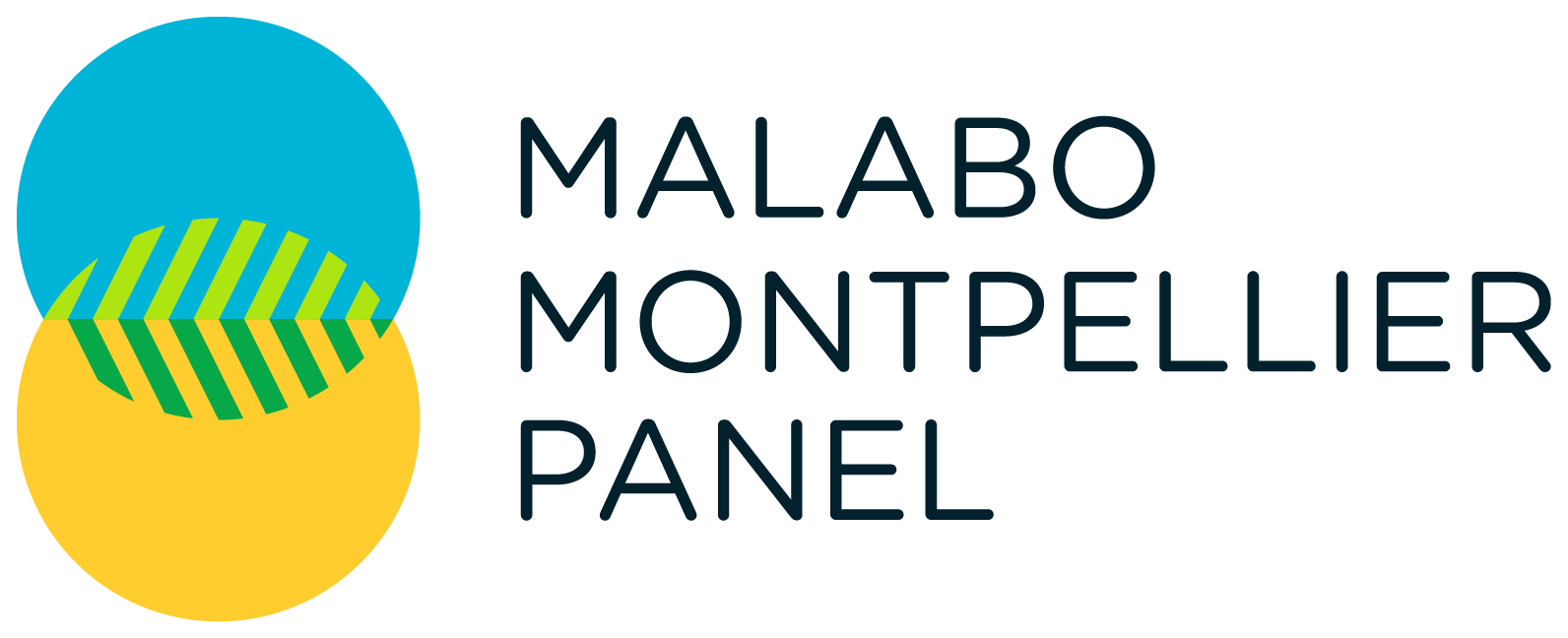
The Malabo Montpellier Panel: High Level Policy Innovation Through Evidence and Dialogue in Agriculture
Co-Organized by the African Development Bank (AfDB) and the Malabo Montpellier Panel in Abidjan
This event will cover the thematic areas covered under the Panel’s first three reports and bring together members of the Panel to present the key findings and recommendations, and to exchange with the experts at the AfDB. They will also discuss the way forward regarding the appropriation of the outcome of the reports by policy […]
-
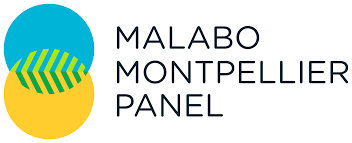
Mechanization of African Agriculture – Does it Create or Destroy Jobs?
Africa needs jobs – productive employment for the many millions of young people who seek their first job every year, many of them in rural areas. The agricultural sector offers huge potential for productive employment. A study by the “Malabo Montpellier Panel” describes the state of mechanization of agriculture in Africa and testifies to considerable increases […]
-
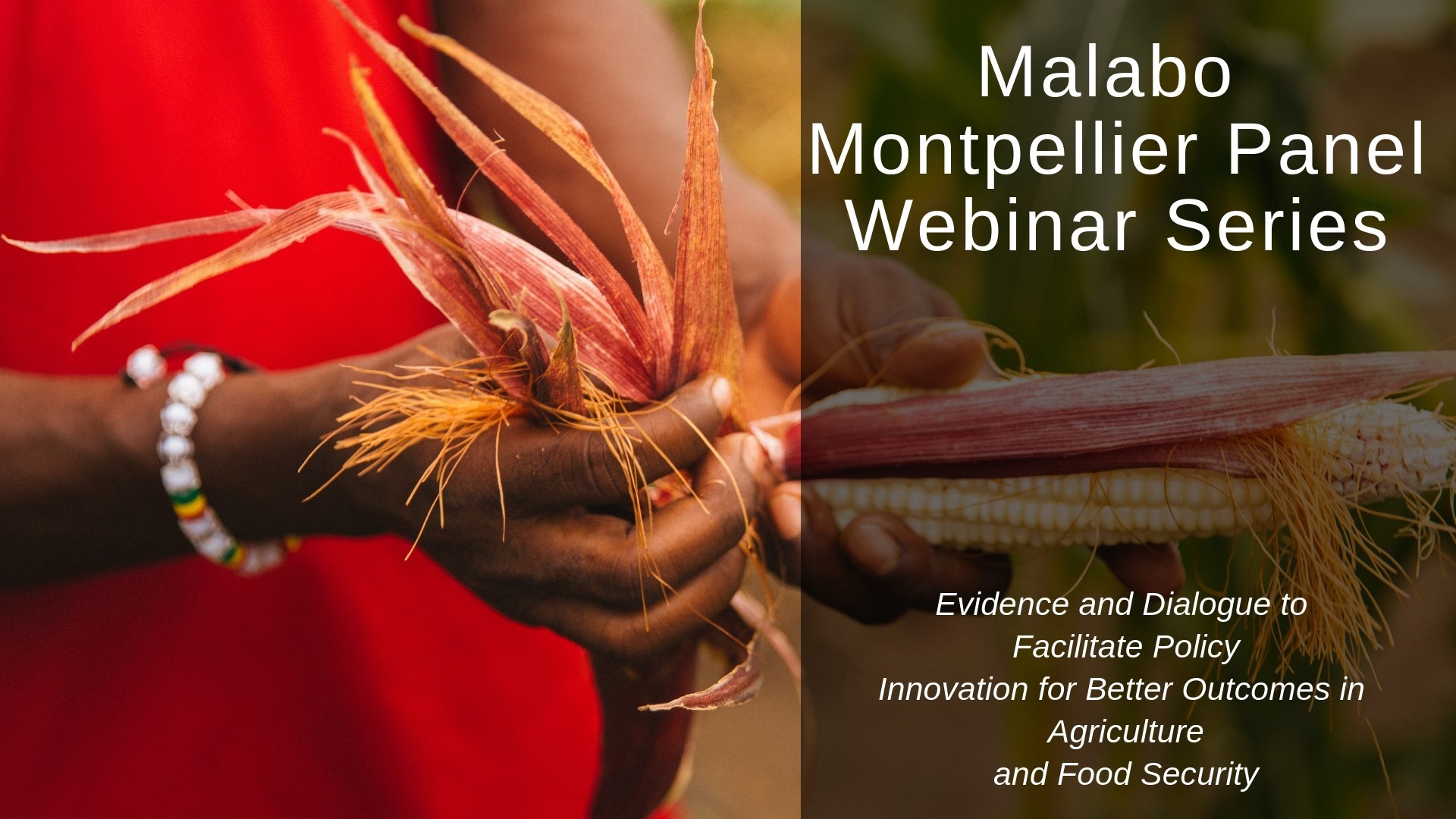
How Can Africa Achieve an Agricultural Transformation Through Smart Irrigation Strategies?
Malabo Montpellier Webinar Series
Africa is seeing a surge of interest in irrigation among small-scale farmers as climate change brings more erratic weather. Currently, only 6 percent of arable land in Africa is irrigated, compared to 14 and 37 percent in Latin America and Asia respectively. At the same time, a growing population across the continent demands more, reliable and […]
-
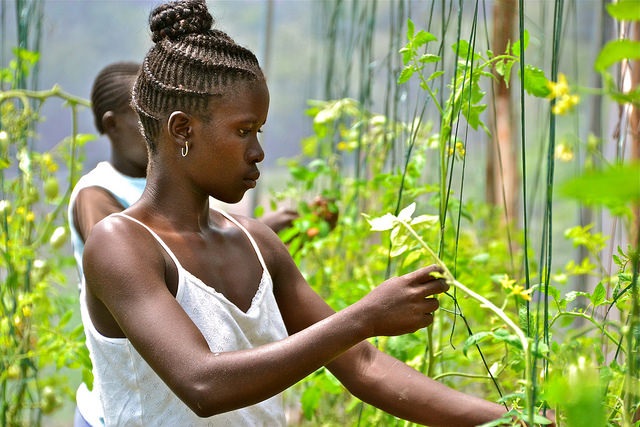
Climate Resilience and Job Prospects for Young People in Agriculture
Organized by CGIAR Research Program on Policies, Institutions, and Markets (PIM)
Climate change matters for all people. Does it matter particularly for young people? If so, where and how? Countries with a high proportion of young job seekers (for example, those projected in 2030 to have 15% or more of their populations in the age group between 15 and 24 years old) are on average more […]
-
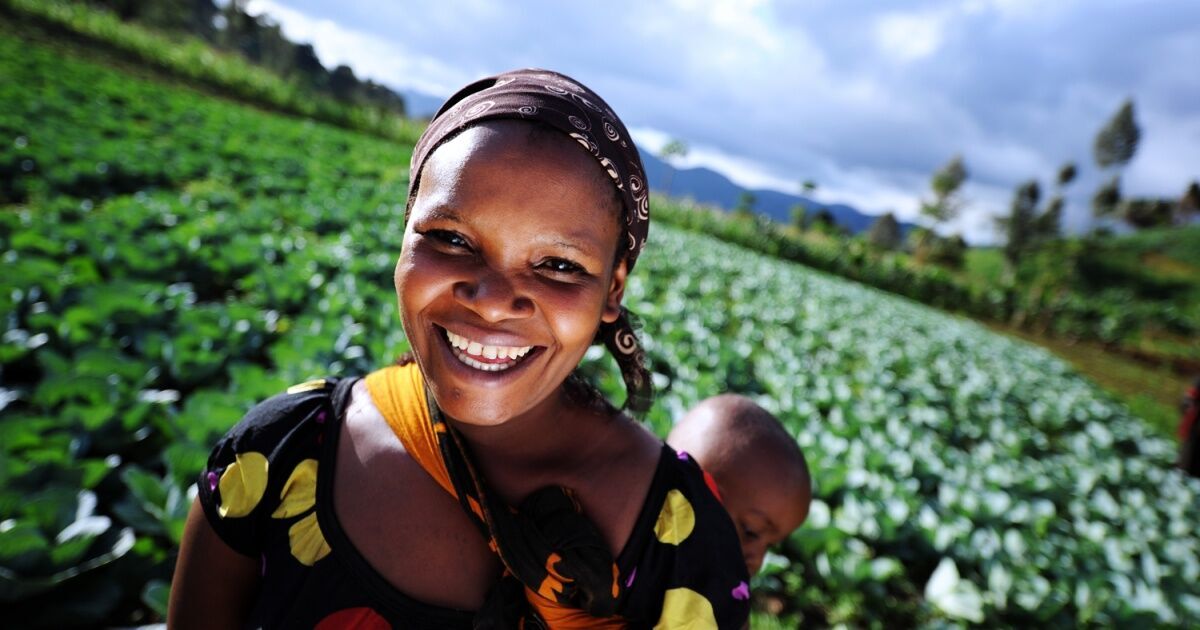
The Knowledge Lab on Climate Resilient Food Systems: An analytical support facility to achieve the SDGs
Co-Organized by IFPRI and AGRA
Food systems fundamentally influence the environment of the planet, the livelihoods of billions of people (including most of the world’s poor), and the nutrition of every human being. Climate-resilient food systems can serve as catalysts for achieving the Sustainable Development Goals, but their current weaknesses are major sources of vulnerability to a variable and changing […]
-
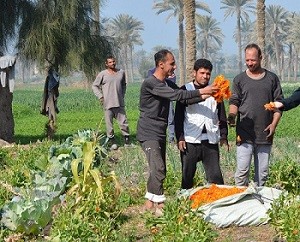
IFPRI Egypt Seminar: Advancing the Food System for Growth, Job Creation, and Better Nutrition in Egypt
According to joint IFPRI-CAPMAS estimates, the food system in Egypt makes up about 25 percent of the Egyptian economy and employs about 33 percent of the workforce. But the food system in Egypt is diverse and promoting different value chains within the food system is likely to lead to different outcomes. Each value chain has […]
-
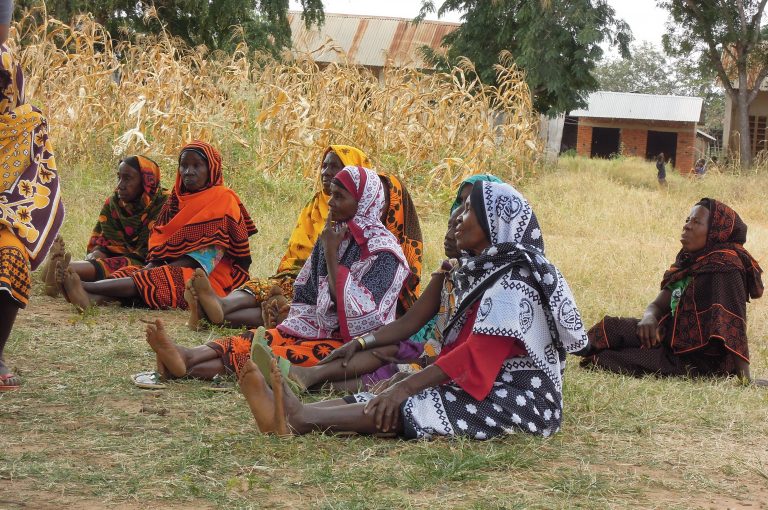
Aspirations, Trust, and Poverty Reduction
Organized by CGIAR Research Program on Policies, Institutions, and Markets
Understanding the psychological dimensions of poverty is critical for understanding how to alleviate it. The goal of this webinar is to highlight novel research on two psychological phenomena that are closely linked with experiencing poverty and economic vulnerability: 1) having low aspirations, or ambitions, for the future, and 2) having low levels of trust or […]
-
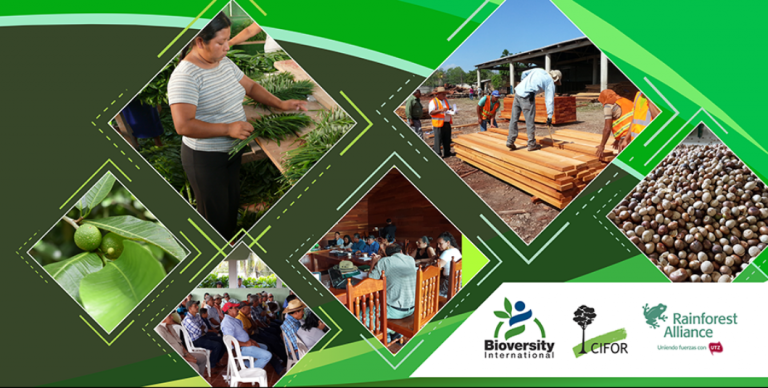
Community Forest Concessions in Petén, Guatemala: Effective Governance for Tropical Forest Conservation and Socio-Economic Development
Organized by CGIAR Research Program on Policies, Institutions, and Markets (PIM)
The devolution* of forest rights to local communities is seen as a critical element of strategies aimed at conserving tropical forests and strengthening livelihoods based on them. In the Maya Biosphere Reserve (MBR) in Petén, Guatemala, forest concessions have been granted to local communities in the Multiple Use Zone (MUZ) on close to 400,000 ha. […]
-

Agricultural Transformation and Market Integration in the ASEAN Region: Responding to Food Security and Inclusiveness Concerns
Co-Organized by Ministry of Agriculture, Forestry, and Fisheries (MAFF), Royal Kingdom of Cambodia; IFPRI; SEARCA; and IFAD
Structural transformation in Southeast Asia poses challenges to the region’s food security and inclusive agricultural growth agenda. Integration of agricultural markets within the Association of Southeast Asian Nations (ASEAN) is high on the policy agenda given the current pressure on moving towards the establishment of a common market. This process though may prove unattainable unless appropriate policies […]
-
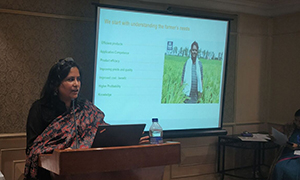
National Dialogue on Innovations for Promoting Balanced Application of Macro and Micro Nutrient Fertilizers in Indian Agriculture
Imbalanced application of different plant nutrients through fertilizers and inadequate access of indigenous sources, such as manures etc. to crops is a widespread problem in India. Lack of adequate knowledge among the farmers about the nutritional requirement of crops, poor access to proper guidelines on right use of plant nutrients combined with inadequate policy support […]
-
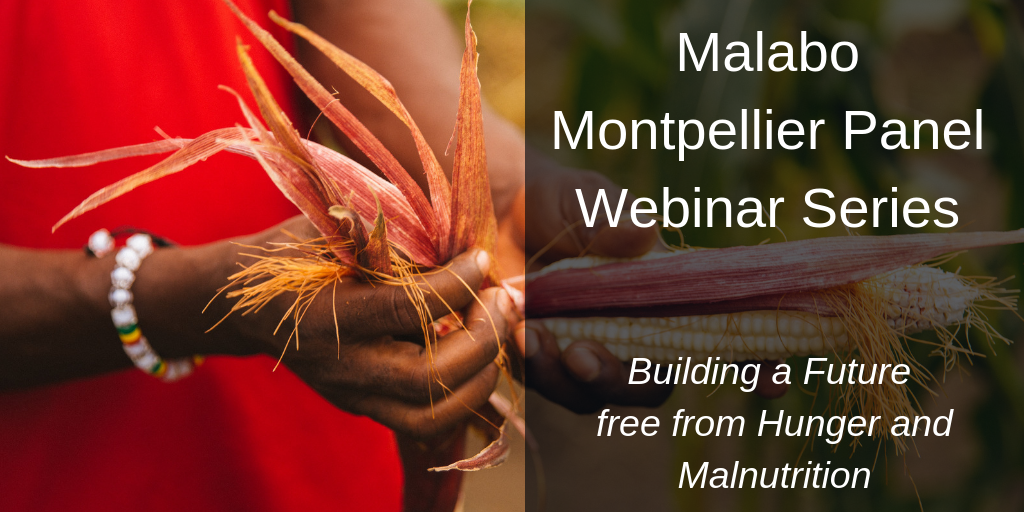
How is Senegal Winning the Battle Against Malnutrition? Discussion of Lessons from Policy and Program Interventions
Malabo Montpellier Webinar Series
Between 2000 and 2016, Senegal made remarkable progress in reducing undernutrition. The prevalence of stunting decreased from 30 to 19 percent. During this seminar/ webinar Mr. Abdoulaye Ka, Head of Senegal’s nutrition coordination unit, Cellule de Lutte Contre la Malnutrition (CLM) will discuss concrete practical steps that Senegal has taken to put into action a set […]
-
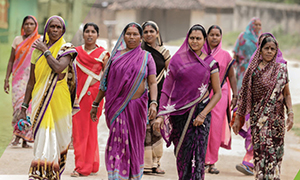
What Lies Beneath: Women’s and Girls’ Wellbeing as a Critical Underpinning of India’s Nutritional Challenge
In collaboration with BMGF, EPoD India at IFMR, Naandi Foundation and UNICEF, POSHAN (Partnerships and Opportunities to Strengthen and Harmonize Actions for Nutrition in India) will deliberate on the aspects of women’s and girls’ wellbeing that are critical for India’s nutritional challenge and look at the status of their wellbeing, globally and specifically in India. Click […]
-
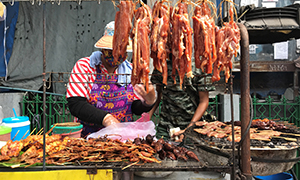
Emerging Food System in South Asia: Policy Challenges and Opportunities
Co-Organized by NITI Aayog and IFPRI
Session 1: Inaugural Session and presentations on opportunities to make food systems more nutritious and healthy Welcome Remarks Remarks Women’s Empowerment and Nutrition: Lessons from Bangladesh Using Data and Empirical Evidence to Improve India’s Nutritional Programs Connections and Disconnections between Agriculture, Nutrition and Health in India Evidence on Strategies to Stabilize Pulse Production and Consumption and […]
-
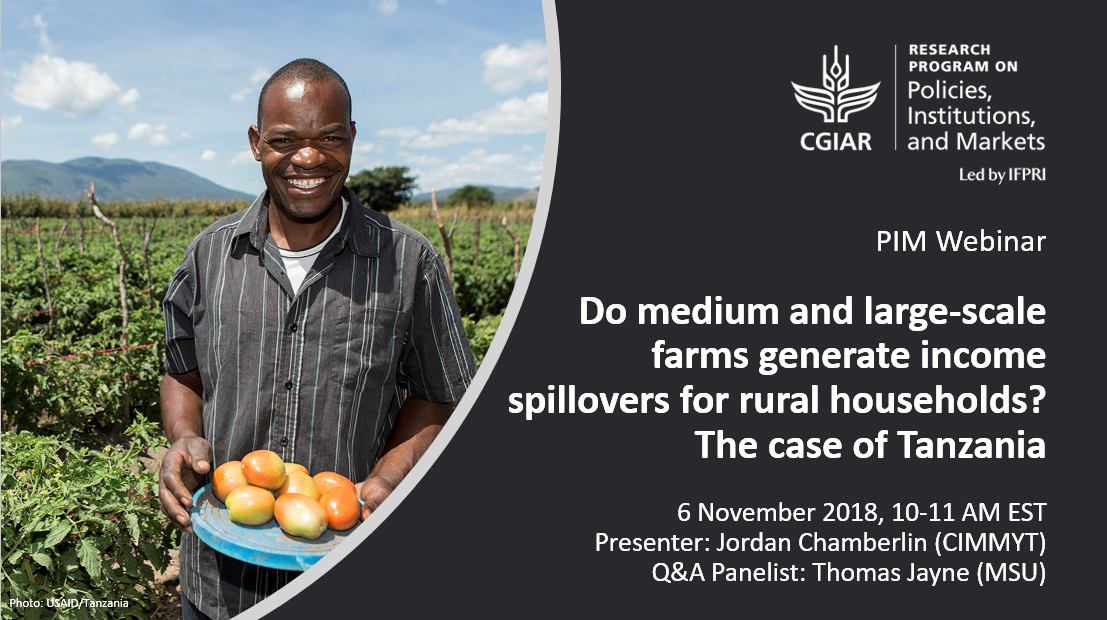
Do Medium and Large-Scale Farms Generate Income Spillovers for Rural Households? The Case of Tanzania
Organized by CGIAR Research Program on Policies, Institutions, and Markets (PIM)
Land acquisitions by foreign and local investor farmers has generated much speculation about the impacts on smallholder households and rural communities. The study that will be presented in this webinar addresses these issues by exploiting inter-district variation in farmland distribution patterns in Tanzania to determine the impact of localized farm structure on rural household incomes […]
-
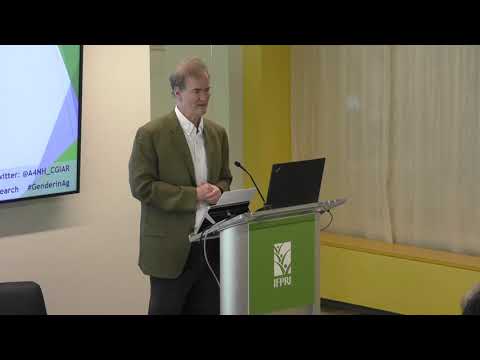
Pro-WEAI: A New Tool for Measuring Women’s Empowerment in Agricultural Development Projects
Soft Launch
The pro-WEAI is a new survey-based index that builds on the Women’s Empowerment in Agriculture Index (WEAI) and is adapted for project use with a closer focus on aspects of empowerment related to health and nutrition. The index is being developed by IFPRI’s Gender, Agriculture, and Assets Project, Phase 2 (GAAP2), a learning and capacity-building initiative […]
-
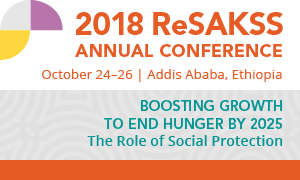
2018 ReSAKSS (Regional Strategic Analysis and Knowledge Support System) Annual Conference
The International Food Policy Research Institute, in partnership with the African Union Commission, is convening the 2018 ReSAKSS Annual Conference to promote review and dialogue on the CAADP implementation agenda among policymakers, development partners, researchers, advocacy groups, farmers’ organizations, the private sector, and other key stakeholders from within and outside Africa. The conference will take […]
-
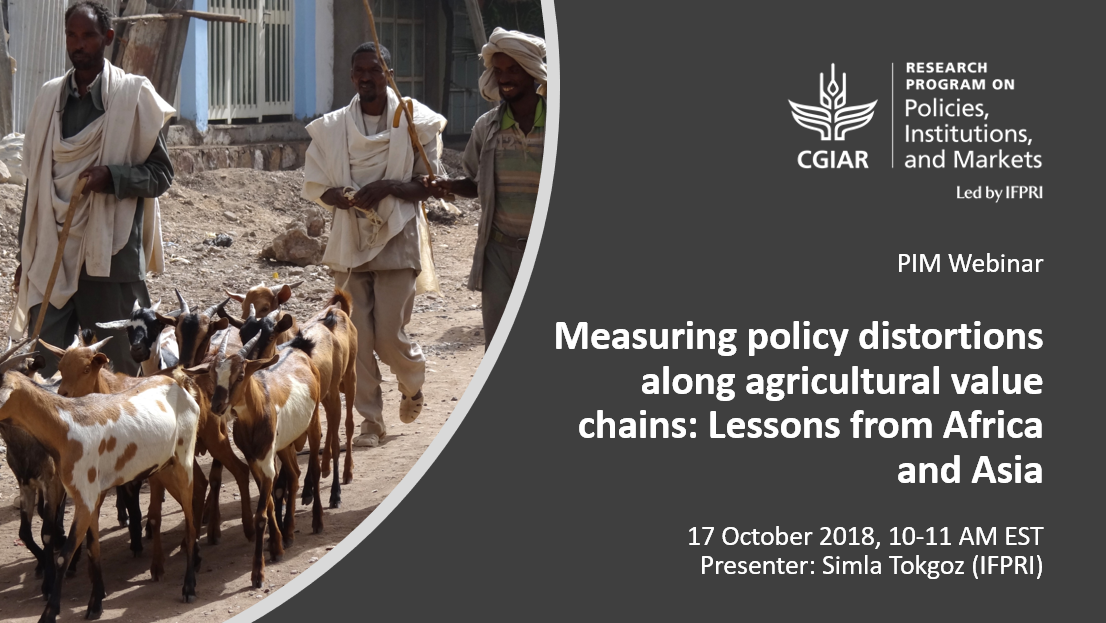
Measuring Policy Distortions Along Agricultural Value Chains: Lessons from Africa and Asia
Organized by CGIAR Research Program on Policies, Institutions, and Markets (PIM)
The global agricultural sector is undergoing a transformation, with a rapid expansion of trade in processed agricultural commodities. With this transformation comes expanded interest in how agricultural value chains can aid rural development. This requires a better understanding of how policies affect price transmission and incentives for producers and consumers along the value chain of […]
-
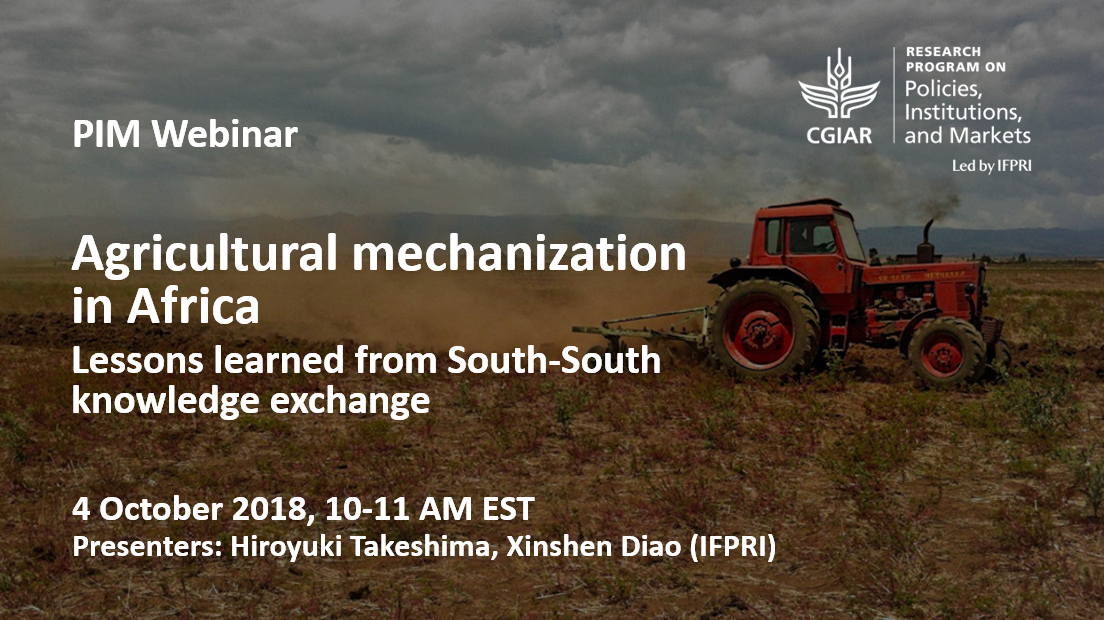
Agricultural Mechanization in Africa: Lessons Learned from South-South Knowledge Exchange
Organized by CGIAR Research Program on Policies, Institutions, and Markets (PIM)
Increased use of mechanical power for farming operations has been one of the key aspects of the agricultural and rural transformation and will remain so under the efforts toward achieving the SDGs. Agricultural mechanization in Africa gained significant attention during the 1980s, but many interventions failed due to insufficient demand at the farm level. Since […]
-
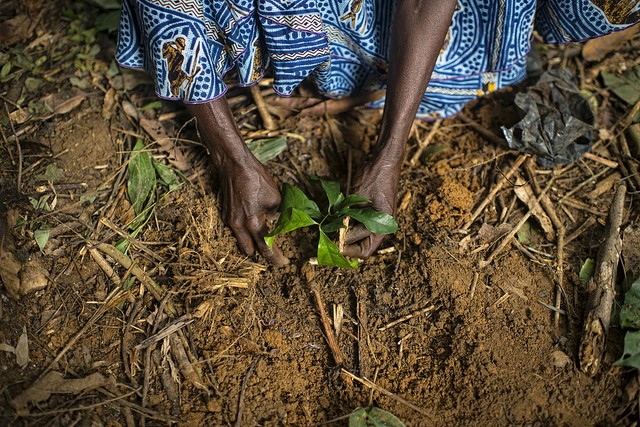
Women’s Land: Beyond “Access” to Rights
Organized by CGIAR Research Program on Policies, Institutions, and Markets (PIM)
Discussants Moderator For most rural households, land is the most valuable asset and the foundation for agricultural production. While a large literature exists on the relationships between land tenure security, livelihoods, and poverty, most of this literature is based on household-level data, and we know little about women’s land rights. As a growing body of […]
-

Rural Transformation in the 21st Century: The Challenges of Low-Income, Late-Transforming Countries
Pre-conference workshop of the 30th International Conference of Agricultural Economists
Rural Transformation refers to the change (usually as part of an economy-wide process of structural transformation) of rural areas that are poor and largely based on agriculture to more diversified and prosperous ones. Countries undergoing the process in the 21st century face a different context than those that did so in the 19th or 20th […]
-
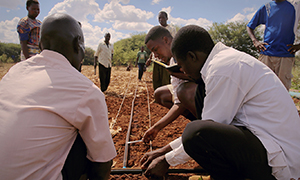
Advancing Research on Nutrition and Agriculture (ARENA)
Pre-conference workshop of the 30th International Conference of Agricultural Economists
The agricultural sector has long been viewed as a major driver of poverty reduction and food security in developing countries, but is now increasingly asked to also reduce the global burden of undernutrition. The linkages between agriculture and nutrition are complex, however. Agricultural growth contributes to income and can directly supply households with a variety […]
-
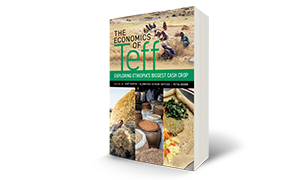
-
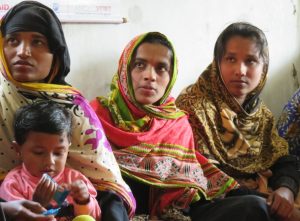
Agriculture, Nutrition, and Gender Linkages (ANGeL) Results Dissemination
Preliminary results focusing on changes in agriculture production diversity, dietary diversity, infant and young child feeding practices, and women’s empowerment in Bangladesh.
-
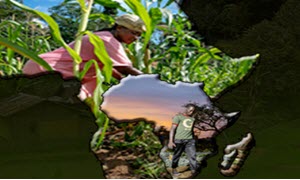
THE RESAKSS DATA CHALLENGE
Kicking off an Africa-wide competition to develop innovative knowledge products using open data from ReSAKSS
The ReSAKSS challenge is an Africa wide -diaspora included- competition targeting researchers, students, creative designers, developers and analysts and anyone passionate about data. The competition will enable you to experiment, discover new tools, and create a community of practice working data in the most innovative way. It will enable various groups of actors, whether in […]
-
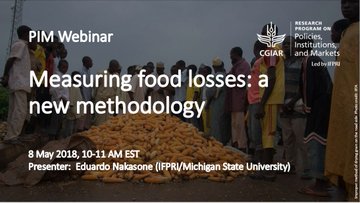
Measuring Food Losses: A New Methodology
Organized by CGIAR Research Program on Policies, Institutions, and Markets (PIM)
The United Nations has recognized the importance of reducing food loss and waste in the Sustainable Development Goal target 12.3 to “halve per capita global food waste at the retail and consumer levels and reduce food losses along production and supply chains, including post-harvest losses” by 2030. Despite broad interest in the problem, measurement of […]
-
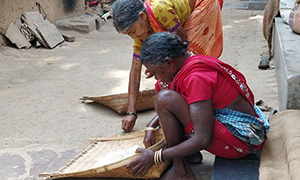
Project-level Women’s Empowerment in Agriculture Index (Pro-WEAI) Learning and Outreach Event
Co-organized by the Food and Agriculture Organization of the United Nations (FAO) and the International Food Policy Research Institute (IFPRI)
The event “Pro-WEAI: A New Tool for Measuring Women’s Empowerment in Agricultural Development Projects” is a “soft launch” of the index and its associated nutrition module as a tool for measuring and assessing the impact of agricultural development projects on women’s empowerment in agriculture. The project-level Women’s Empowerment in Agriculture Index (pro-WEAI) is a new […]
-
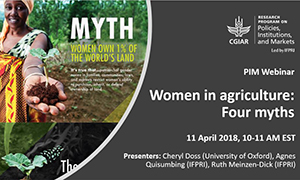
Women in agriculture: Four myths
Organized by CGIAR Research Program on Policies, Institutions, and Markets (PIM)
Sustainable Development Goal (SDG) 5 on gender equality and women’s rights and at least 11 of the 17 SDGs require indicators related to gender dynamics. Despite the need for reliable indicators, stylized facts on women, agriculture, and the environment persist. During this webinar we will focus on four gender myths: Based on the review of […]
-
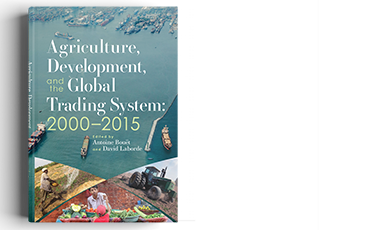
Strategy and Development Roundtables (RSD) & book launch
Agriculture, Development, and the Global Trading System
IFPRI’s Dakar office is pleased to invite you to its conference series “Strategy and Development Roundtables” (SDR) in partnership with ISRA and DAPSA and to the Dakar launch of “Agriculture, Development, and the Global Trading System”. Click here for more information.
-
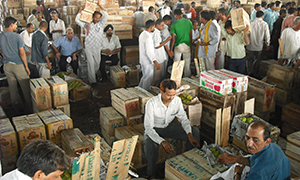
Innovations in Ensuring Remunerative Prices (MSP) to Farmers
Challenges and Strategies
International Food Policy Research Institute (IFPRI), jointly with the National Academy of Agricultural Sciences (NAAS), and the ICAR- National Institute of Agricultural Economics and Policy Research (ICAR-NIAP), is organizing a Policy Dialogue on “Innovations in Ensuring Remunerative Prices (MSP) to Farmers: Challenges and Strategies” on Friday, March 23, 2018 at the NASC Complex, Pusa, New Delhi. Click here […]
-
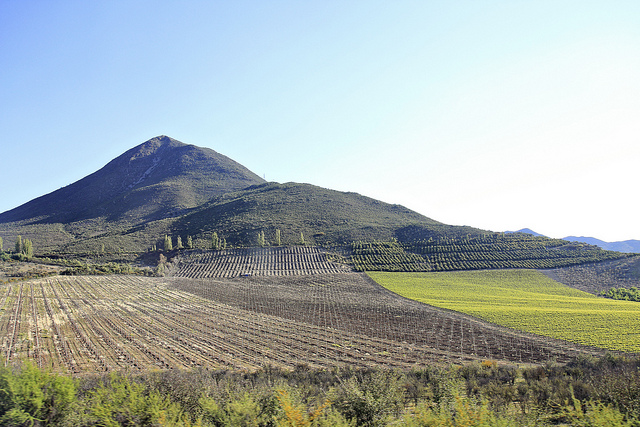
Tracking Argentina’s G20 Presidency
Building Consensus for Fair and Sustainable Development The G20 brings together 19 of the world’s most important industrialized and emerging economies, plus the European Union, to discuss important global trends. The scope of the G20 agenda has broadened since its creation in 1999 to include broader topics, such as sustainable development, agriculture, trade, energy, climate […]
-
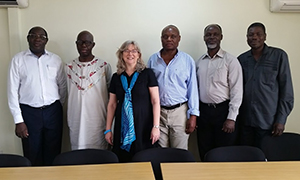
International Workshop on Assessing Models of Public-Private Partnership for Irrigation Development (AMPPPIDA)
Irrigation is important in Ghana to deal with the erratic rainfall, especially in the context of climate change. Irrigation can minimize frequent food shortages that are attributable to dependence on rainfall, and increase yields. However, to do this effectively requires a range of infrastructure that will provide for a wide range of crops and efficient […]
-
Resilient agriculture to accelerate progress: Compact2025 Forum in Ethiopia
Ethiopia has made impressive progress reducing hunger and undernutrition, but “food security and nutrition are still key development issues,” said Dejene Abesha, RED&FS Secretariat, at the conference on The Future of Ethiopia’s Agriculture: Towards a Resilient System to End Hunger and Undernutrition held in Addis Ababa, Ethiopia on December 15, 2017. IFPRI and Compact2025 co-hosted […]
-
The 2017 ReSAKSS-Asia Conference – Agriculture and Rural Transformation in Asia
An international conference jointly organized by ReSAKSS-Asia, IFPRI, the Thailand Development Research Institute (TDRI), and TVSEP project of Leibniz Universit Hannover with financial support from USAID and the Deutsche Forschungsgemeinschaft (DFG) The conference will be followed by a field trip to Charoen Pokphand (CP) Company’s facilities on Dec 14th. The objectives are to: •Exchange experiences […]
-
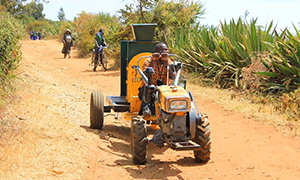
South-South Knowledge Sharing on Agricultural Mechanization
IFPRI, CIMMYT and the Ethiopian Agricultural Mechanization Forum are jointly organizing the conference on “South-South Knowledge Sharing on Agricultural Mechanization”, which will bring together national and international researchers, policy makers, donors and implementers to exchange experiences and promote cross-country learning on agricultural mechanization. The conference will address experiences on agricultural mechanization in twelve countries in Asia and Africa (Bangladesh, […]
-
Moving from relief to resilience: Compact2025 Forum in Malawi
Building resilience is no longer a talk show, it is a matter of action,” urged Right Honourable Dr. Saulos Klaus Chilima, Vice President of the Republic of Malawi, in his keynote address at the Compact2025 Forum in Lilongwe, Malawi on October 31, 2017. The Forum, hosted by the International Food Policy Institute (IFPRI), followed up […]
-
Building on Progress in Rwanda: Compact2025 Forum
Ending hunger and malnutrition, and building human capacity is “a moral obligation that we need to fulfill as the current generation,” highlighted Dr. Gerardine Mukeshimana, the Honorable Minister of Agriculture and Animal Resources, as she opened the Compact2025 Forum in Kigali, Rwanda on October 23, 2017. Jointly hosted by the International Food Policy Research Institute […]
-

9th CAER-IFPRI Annual Conference
Agricultural Competitiveness in China: Assessment, Challenges, and Options
Chinese agricultural producers face great uncertainty every day due to volatile commodity prices, skyrocketing input costs, uncontrollable weather, and an ever-changing globalized trade environment. Therefore, Chinese agricultural policy that supports farming families during periods of economic uncertainty and enhances their competitiveness in the global marketplace is needed. The 9th CAER-IFPRI Annual Conference on Chinese agricultural issues […]
-
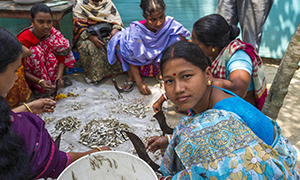
Eliminating Hunger and Malnutrition: Are Sustainable Solutions in Sight?
Organized by IFPRI’s Bangladesh Policy Research and Strategy Support Program (PRSPS), this workshop aims to bring together key stakeholders to discuss and debate critical issues related to poverty, hunger, and malnutrition that Bangladesh faces. Technical presentations will center on achieving sustainability in food production, consumption, and nutrition, and building resilience to climate and other shocks, with the […]
-
Compact2025 – Stakeholders Convene to Accelerate Progress in Bangladesh
Success in ending hunger and undernutrition depends on country-owned and country-led strategies and investments. On October 4, 2017, the International Food Policy Research Institute organized two events in Dhaka, Bangladesh, bringing together stakeholders to discuss the critical poverty, hunger, and malnutrition issues that the country faces and chart a path forward to accelerate progress. High-level […]
-
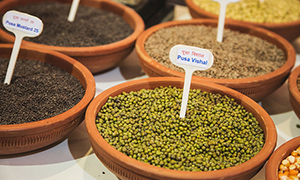
Developing the Seed Sector: What Role for Policy?
The systematic and continuous introduction of improved seed varieties and their widespread adoption by farmers are a vital dimension of sustained agricultural productivity growth. Policy initiatives can play a major role in this process. This workshop will explore how policy can build an enabling environment for national seed sector development. It will combine inaugural remarks from key […]
-
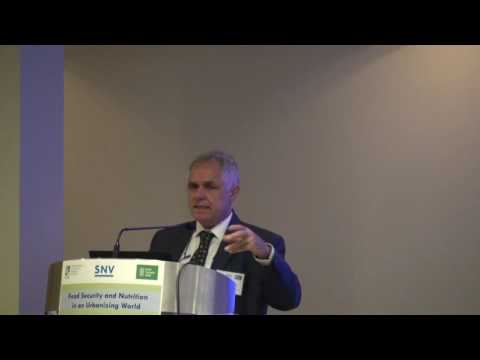
Food Security and Nutrition in an Urbanizing World
Hyper-urbanization and its implications for food security and nutrition in urban and rural areas is an urgent concern that has gained increasing attention over the years. The International Food Policy Research Institute (IFPRI), SNV Netherlands Development Organization, and Welthungerhilfe are jointly organizing a one-day event in Brussels on the eve of the European Development Days […]
-
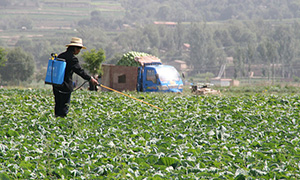
Better Targeting Food Safety Investments in Low and Middle Income Countries
Recent work by the WHO shows the health burden of foodborne disease is comparable to that of malaria, HIV/AIDS or tuberculosis. To further expose and explore the massively under-estimated burden of foodborne disease and its likely causes, the CGIAR Research Program on Agriculture for Nutrition and Health (A4NH), and the London School of Hygiene & […]
-
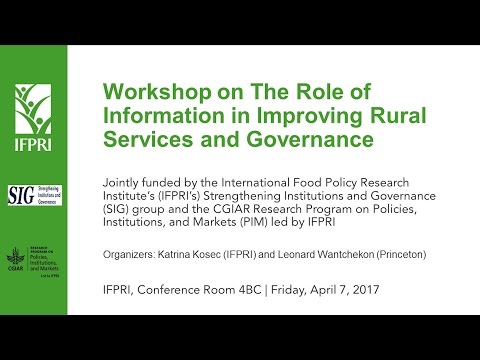
The Role of Information in Improving Rural Services and Governance
This workshop is jointly organized by the International Food Policy Research Institute’s (IFPRI’s) Strengthening Institutions and Governance (SIG) group and the CGIAR Research Program on Policies, Institutions, and Markets (PIM) led by IFPRI. High quality rural governance has the potential to significantly improve the productivity and welfare of the poor—70 percent of whom live in […]
-
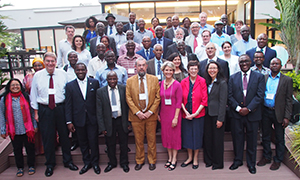
Technologies, Platforms and Partnerships in support of the African agricultural science agenda
A meeting was held in Abidjan, Cote d’Ivoire April 4 and 5, 2017, co-hosted by IFPRI and AfricaRice, to strengthen linkages and forge stronger partnerships around new ideas, tools and technologies that contribute to developments in agricultural science, technology and innovation. The meeting was attended by over 60 participants from international development institutions (World Bank, […]
-

Geneva Launch of 2017 Global Food Policy Report
Chair: Speakers: The world is rapidly urbanizing. How does this affect hunger and malnutrition? IFPRI’s 2017 Global Food Policy Report takes an in-depth look at the challenges and opportunities of urbanization for food security and nutrition. Critical questions addressed in this Report include: Join us to discuss major food policy issues and developments. *Lunch is provided
-

Rome Launch of 2017 Global Food Policy Report
Speakers: Moderator: The world is rapidly urbanizing. How does this affect hunger and malnutrition? IFPRI’s 2017 Global Food Policy Report takes an in-depth look at the challenges and opportunities of urbanization for food security and nutrition. Critical questions addressed in this Report include:
-

Bangladesh Integrated Food Policy Research Program Launching Ceremony
The Bangladesh Integrated Food Policy Research Program is designed to meet the food policy needs of a growing Bangladesh.
-
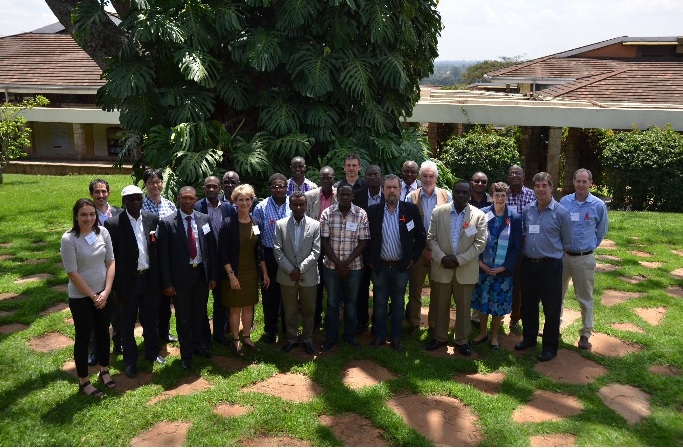
Round 2 Technology Assessments and Platforms: Tools and Reach in Africa
Round 2 of the Technology Assessments and Platforms: Tools and Reach in Africa – A Partner’s Meeting took place on ILRI’s Nairobi campus, December 1 and 2, 2016. The meeting was co-hosted by the S&T Partnerships in Africa Program from IFPRI and the BeCA-ILRI Hub, and supported through IFAD and USAID, in collaboration with the […]
-
2016 RESAKSS ANNUAL CONFERENCE – Achieving a Nutrition revolution for Africa: The Road to Healthier Diets and Optimal Nutrition
IFPRI, in partnership with AUC, convened the 2016 ReSAKSS Annual Conference to promote review and dialogue on the CAADP implementation agenda among policymakers, development partners, researchers, advocacy groups, farmers’ organizations, private sector, and other key stakeholders from within and outside Africa. The conference took place at the Labadi Beach Hotel in Accra, Ghana on 18-20 […]
-
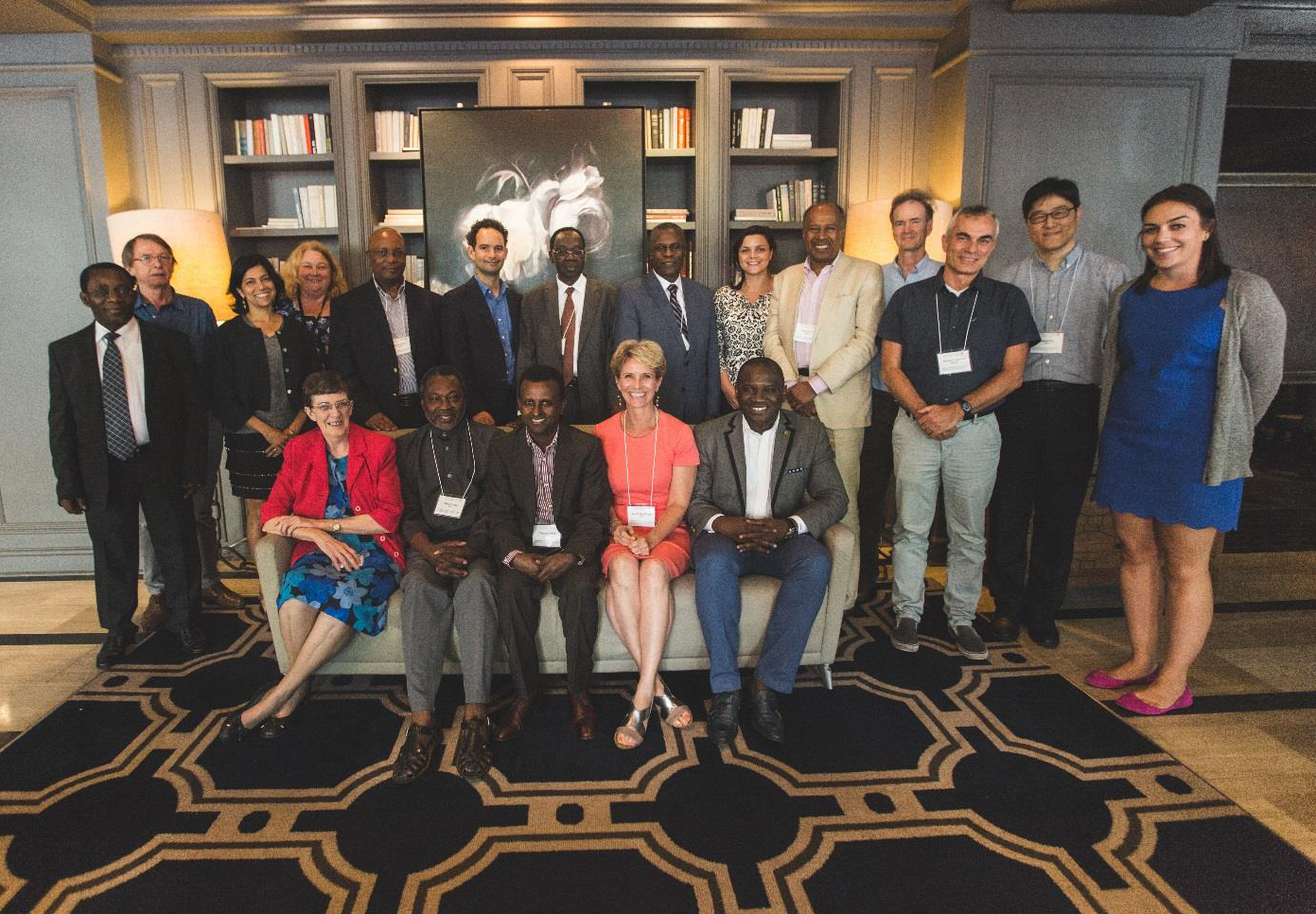
Technology Assessments and Platforms: Tools and Reach in Africa
A Partners Meeting
A meeting was held in Washington, D.C. (July 19-21, 2016) sponsored by the Scientific and Technical Partnerships in Africa Program, hosted at IFPRI and supported by IFAD, in partnership with the CGIAR research program on Policies, Institutions and Markets (PIM). The gathering brought together nearly 40 participants from CGIAR Centers and fellow CRPs, CAADP partner […]
-

Pulses for Sustainable Agriculture and Human Health
Organized by International Food Policy Research Institute (IFPRI), National Academy of Agricultural Sciences (NAAS), TCi of Cornell University (TCi-CU) and Agriculture Today
Global demand for pulses is rapidly increasing. For South Asia region, pulses are traditionally important food commodities and sources of protein.
-

Sustainable Agricultural Growth in Nepal: Challenges, Opportunities and Options
Organized by International Food Policy Research Institute (IFPRI), Nepal Economic Association (NEA) and Institute for Integrated Development Studies (IIDS)
This conference is being organized to address the challenges and explore possible options for sustainable and accelerated agriculture growth.
-
Initiating Compact2025 in Malawi: Roundtable discussion
Malawi is committed to accelerating progress toward ending hunger and undernutrition. To help determine how to do so, Compact2025 convened a roundtable discussion in Lilongwe, Malawi on May 26, 2016. Malawi has made significant progress in reducing hunger and undernutrition. From 1990 to 2015, prevalence of undernourishment has fallen by more than half (from 45 […]
-
Accelerating progress in Bangladesh: Roundtable discussion
Compact 2025
Bangladesh has made impressive progress in reducing hunger and undernutrition. How to accelerate this progress was discussed by a range of stakeholders at the Compact2025 roundtable discussion in Dhaka, Bangladesh on May 5, 2016. IFPRI country representative Dr. Akhter Ahmed opened the meeting and presented on Bangladesh’s current food security and nutrition situation as well […]
-
Launching Compact2025 in Ethiopia: Roundtable discussion
Deputy Prime Minister Demeke Mekonnen opened the Compact2025 roundtable discussion in Ethiopia, where progress in reducing hunger and undernutrition must be accelerated to reach the 2025 goal. The Deputy Prime Minister is also a member of the Compact2025 Leadership Council. The Ethiopia roundtable discussion, which took place in Addis Ababa, Ethiopia on March 28, 2016, […]
-
Compact2025 taking off in Rwanda: Roundtable discussion
Rwanda is committed to ending hunger and undernutrition by 2025, said the Rwandan Prime Minister Anastase Murekezi. He discussed the need to address these challenges during the Compact2025 roundtable discussion in Kigali, Rwanda on March 24, 2016. “We can’t afford to lag behind when other countries are successful in fighting malnutrition,” said the Prime Minister, who is […]
-
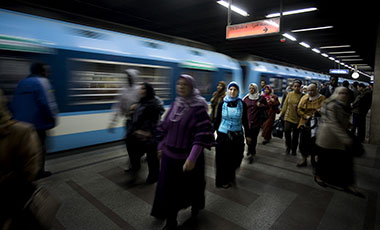
IFPRI Egypt Strategy Support Program Launch Event
IFPRI launched its Egypt Strategy Support Program (SSP), on March 1, 2016 in Cairo
-
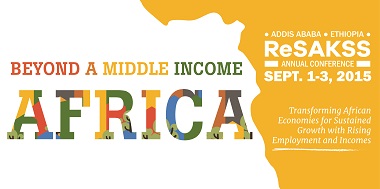
Beyond a Middle Income Africa
Transforming African Economies for Sustained Growth with Rising Employment and Incomes
-
2015 ReSAKKS Conference – Beyond a Middle Income Africa: Transforming African Economies for Sustained Growth with Rising Employment and Incomes
Organized by the International Food Policy Research Institute (IFPRI) in partnership with the African Union Commission (AUC), the conference was hosted by AUC at the United Nations Economic Commission for Africa headquarters in Addis Ababa, Ethiopia
-
Together for Nutrition 2015
Evidence on working across sectors for improved nutrition in Ethiopia
Transform Nutrition, IFPRI’s Ethiopia Strategy Support Program and POSHAN (Partnerships and Opportunities to Strengthen and Harmonize Actions for Nutrition in India) are organising this one day conference in Addis Ababa. Bringing together national policy makers, national and international researchers, donors and implementers this conference will present the most recent evidence on the major nutritional issues in Ethiopia and […]
-

New Normal for Economic Growth, Agriculture, Food and Nutrition Security
Organized by IFPRI and its co-hosting partners, the Chinese Academy of Agricultural Sciences (CAAS) and National School of Development of Peking University In this High-Level Policy Roundtable, organized by IFPRI and co-hosted the Chinese Academy of Agricultural Sciences (CAAS) and National School of Development of Peking University, experts on food and nutrition security in China […]
-
Innovation in Indian Agriculture: Ways Forward
This event is by invitation only The Institute of Economic Growth (IEG), New Delhi and the International Food Policy Research Institute (IFPRI), Washington, DC will convene a two-day international conference in New Delhi on December 4-5, 2014 to explore innovative ways of accelerating development in India’s agricultural sector through productivity growth, higher returns to farming, […]
-
Together for Nutrition 2014
Working Across Sectors to Improve Nutrition in India
Working Across Sectors to Improve Nutrition in India POSHAN (Partnerships and Opportunities to Strengthen and Harmonize Actions for Nutrition in India) and Transform Nutrition are pleased to announce the conference Together for Nutrition 2014: Working Across Sectors to Improve Nutrition in India, which will be held October 29–30, 2014, in New Delhi. This conference will […]
-
2014 ReSAKSS Annual Conference – Promoting Agricultural Trade to Enhance Resilience
The Regional Strategic Analysis and Knowledge Support System (ReSAKSS) 2014 Annual Conference is being organized by the International Food Policy Research Institute (IFPRI) in partnership with the African Union Commission (AUC) and NEPAD Planning and Coordinating Agency. The conference will bring together researchers, policymakers, donors, advocacy groups, farmers’ organizations, and the private sector to review […]
-
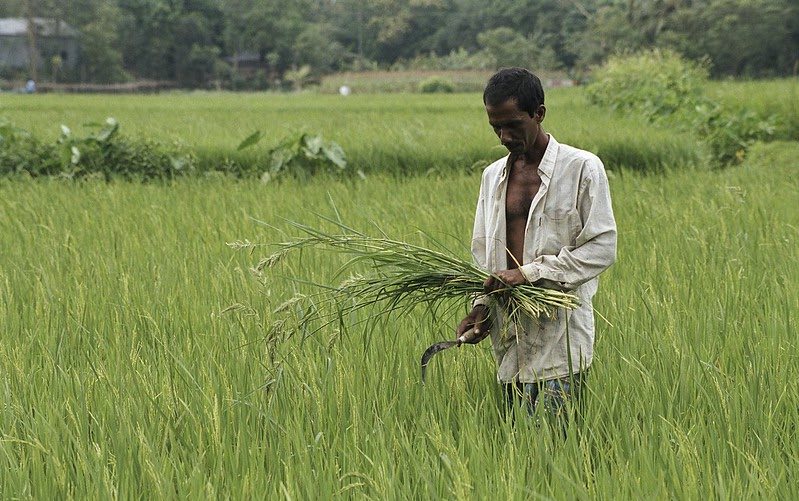
IFPRI-PRSSP Workshop: Evidence-Based Policy Options for Food and Nutrition Security in Bangladesh
Background Food and nutrition security depends not only on food production and consumption but also on the policies that affect food systems, from farm to table. Since 1988, the International Food Policy Research Institute (IFPRI) has had a strong presence in Bangladesh, conducting research, providing policy support, and strengthening stakeholders’ capacity. This on-the-ground presence has […]
-
Building Resilience for Food and Nutrition Security
Poor countries and vulnerable people are being hit by a barrage of economic, environmental, and political shocks, and these shocks are becoming more frequent and intense. There is a general understanding that building resilience means helping individuals, households, communities, and countries prepare for, cope with, and recover from such shocks. However, there is far less […]
-
Building Resilience for Food and Nutrition Security
IFPRI 2020 Conference The IFPRI 2020 Conference, held May 15-17, 2014 in Addis Ababa, Ethiopia, will bring together policymakers, practitioners, and scholars to discuss how resilience can be strengthened for food and nutrition security. The conference will: Conferees will represent food and nutrition security, agriculture, humanitarian, and related development sectors as well as actors from […]
-
Agricultural Transformation in Central Asia
Policy Research Conference hosted by IFPRI and University of Central Asia The International Food Policy Research Institute (IFPRI) and the University of Central Asia will host a Research Conference on Agricultural Policy and Food Security in Central Asia, to unveil IFPRI’s new Central Asia Research and Capacity Strengthening Program and to engage national policymakers, researchers, […]
-
The Second Global Conference on Biofortification
Getting Nutritious Foods to People
Getting Nutritious Foods to People The Second Global Conference on Biofortification is designed to be a consultation with major stakeholders who can help mainstream biofortification as a nutrition and public health intervention. It will explore some of the most critical challenge areas and possible solutions related to the scaling up and mainstreaming of biofortification. There […]
-
Land Management in Bhutan
Land degradation and the response in the form of sustainable land management practices are alive and well in the Kingdom of Bhutan. The Workshop on Assessing the Economic Benefits of Sustainable Land Management Practices in Bhutan took place March 18 in Thimphu, Bhutan in cooperation with the World Bank Group, National Soil Service Center of […]
-
Is China Entering a High Food Price Era?
3rd CAER-IFPRI Annual International Conference Background China Agricultural Economic Review (CAER) is delighted to announce its third annual conference, which is being organized by the CAER editorial office and International Food Policy Research Institute (IFPRI). CAER is an academic journal published by Emerald in association with China Agricultural University and Chinese Association of Agricultural Economists, […]



